Cruise Ship Safety Officer Jobs
Back to All Deck Department Jobs
Register for this Job Now!

Safety Officer Job Description and Duties:
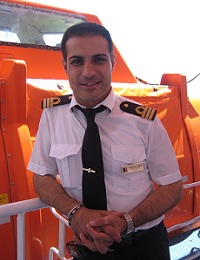
- Depending on the cruise line, the Safety Officer may or may not be required to perform bridge watch keeping duties
- Reprots to the Staff Captain
- Directly responsible for the on board safety and accident prevention program
- Coordinates and organizes all aspects in the management of an emergency situation
- Coordinates all passenger and crew safety drills and along with other appointed deck officers performs safety instructions to crew and staff members from all shipboard departments
- Trains lifeboat, life raft, emergency evacuation and fire-fighting parties and operating crew
- Assist the Staff Captain in the preparation of the lists of in port manning personnel for all departments and hands them to the department heads for internal distribution
- Oversees the maintainance and inspects all supply sources - accumulators, batteries and uninterrupted power supply of all emergency equipment as well as the emergency generator and lights
- Responsible in conjunction with the Staff Chief Engineer for all the fire-fighting and lifesaving equipment aboard the ship - Lifeboats, life rafts and launching devices, life jackets, life rings, fire alarms and detection systems, sprinkler system, fire extinguishers, watertight and fire doors, fire and bilge pumps. Advises the Staff Captain of any defects or malfunctions of safety related equipment
- Makes sure that the public address system is in proper working order and is well heared in all passenger and crew cabins
- Keeps records of safety drill activities and exercises in the deck logbook
- Prepares monthly reports to be handed to the Staff Captain
- Responsible for budget and cost containment through the proper use, handling and maintenance of supplies and equipment
Safety Officer Job Requirements:
Chief or 1st Officer license and all required STCW 95 certificates
Diploma from an accredited maritime training school or facility
Minimum two years experience as a Deck Officer (minimum one year as a 1st or 2nd Officer) aboard a passenger vessel
Very good verbal and written command of the English language
Computer literacy - basic Windows based programs
Decision Making, coaching and team building skills
Safety Officer Salary Range:
$5000 to 8000 U.S. per month depending on the cruise line and time served with the company. Possibilities for promotion to a Staff Captain position.

- Member Login
- Connect with Us
- Like us on Facebook
- Follow us on Twitter
- Sign Up For Our Jobs Newsletter
It is the job of the Safety Officer to ensure that everything on board the cruise ship is according to the proper safety standards. This includes devices and equipment for emergencies, as well as making sure that crew and passengers are properly informed of the necessary procedures.
The Safety Officer is responsible to ensure that all fire-fighting equipment and life-saving equipment is properly maintained. They also:
- Maintain log books describing all maintenance of safety equipment.
- Record all certificates related to safety and fire-fighting.
- Train the fire-fighting crew personally.
- Conduct safety drills – including fire and abandon ship.
- Assist the Staff Captain during inspections.
- Work with Staff Officer and Hotel Director to resolve issues.
The qualifications for the Safety Officer position are that they must have either a Captain or Master certificate. They also need to have experience on cruise vessels for the position. Excellent English is expected – spoken and written.
To view the rest of this page, you will need to be a Premium Member.You are visiting the Members Section as a Free BASIC Member . You will only have access to a limited amount of Job Hunting Tools and Content. For full access you will need to upgrade to a PREMIUM MEMBERSHIP. Upgrade Today
Security Officer Jobs
You are visiting the Members Section as a Free BASIC Member . You will only have access to a limited amount of Job Hunting Tools and Content. For full access you will need to upgrade to a PREMIUM MEMBERSHIP.

What Are The Duties Of Ship Safety Officer (SSO)?
The ISM Code was legislated under SOLAS to mee t the requirements set out in The Merchant Shipping and Fishing Vessels (Health and Safety at Work) Regulations 1997 (SI 1997 No. 2962) (the Regulations) and the Code of Safe Working Practice for Merchant Seafarers (CoSWP).
It has been quoted by several studies done by various authorities that most of the accidents at sea occur due to Human Error.
Accidents at sea can be avoided with a proper training plan in place. All sea-going vessels have a safety management plan with a manager to look after it.
The Ship Safety Officer is appointed to look after the safety of the fellow crew on board and to promote a safety culture and preach safety awareness by means of training and motivation.
If there is no safety culture and supervisor on board ship, it can be a dangerous situation for the ship’s crew and the cargo.
Moreover, in case the ship is involved in an accident, it endangers the marine environment as well, and further increases downtime and financial losses.
Everyone is aware that during port state audits, ship survey etc. the first thing that is checked is how safe the ship is?
Hence the ship’s crew must understand the importance of a safer ship and inculcate a safety awareness culture which can be better done with a qualified safety officer on board ship .
Under the International Safety Management (ISM) code , every ship must appoint a ship safety officer (SSO) who has the knowledge, experience, and skills to look over the important safety issues related to the ship and its crew’s health.
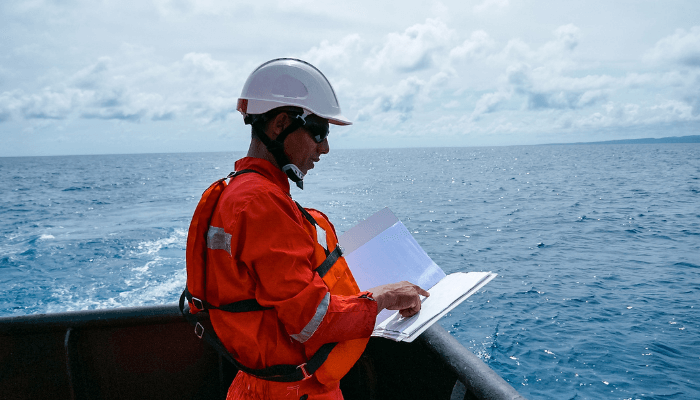
The details of the training guidelines for the Ship Safety Officer is provided in STCW Code 2010 Table A-II/2 & A-III/2 and IMO Model Course 3.11 (Marine Accident & Incident Investigation).
According to the ISM code, a ship safety officer should have a minimum of two years of consecutive sea service. In the case of tanker ships, the safety officer should have six months of experience on tanker ships in addition to two years of consecutive sea service.
The responsibility for the position of the Ship safety officer is usually taken by one of the officers aboard ship. The officer with relevant experience needs to do a Ship Safety Officer Course before joining the ship, which allows him/her to take the responsibility of SSO when onboard.
It is a general practice to not have the Master acting as ship safety officer as the ship captain is already been burdened with several other responsibilities.
Officer of the watch is usually selected as Safety Officer and the responsibility is rotated on a regular basis.
The appointed ship service officer should have the necessary qualities to properly take the responsibilities imposed under the relevant provision of the ISM regulation. He should also help in the proper implementation of the ISM code on the ship.
Duties of Ship Safety Officer
The safety officer of the ship is entitled to look over all the duties related to the safety of the ship. Some of the important duties include:
- To survey the ship for all potential hazards directly affecting the health and safety of the crew
- Supervising and ensuring compliance with the SMS of the ship and its every aspect including the updates and amendments which involve liaising with the Master and the company safety representative
- Coordinating the safety measures to be maintained when cargo work is in progress by liaising with the port representative. Again, compliance with the SMS is important in this regard
- Pointing out deficiencies in any existing security plans/measures and bringing about changes by communicating the same to the Master
- To carry out a safety inspection at regular intervals (at least once in every three months for complete ship)
- Reporting to the Master on non-conformities to the SMS including deficiencies
- Enhancing the awareness with respect to the safety onboard and thereby taking substantial steps for enhancing the safety
- Ensuring the crew always carries their jobs with a safety-conscious attitude and know all the aspects of IMS code and relevant health and safety regulations
- Imparting training to the shipboard personnel if need be so that they may be kept updated with all the latest improvements and at the same time inform them of any deficiencies that might need to be addressed
- To look after and act on the complaints of the crew related to health and safety
- To provide information to ship master regarding the deficiencies and to approach ship Master for removal of any potential hazard from the ship which may lead to an accident
- If there is an accident involved, the SSO will lead the investigation and prepare a report
- To maintain the records all major and minor accidents
- To make sure that all equipment associated with the ISM Code and the SMS are tested, maintained and calibrated accordingly
- To stop the ship operation if it directly affects the safety of the crew or the ship
The ship safety officer is not required to perform any of the above-mentioned duties when an emergency action or response is being taken to safeguard life or safety of a ship. Moreover, he/she is also not in charge of any kind of medical treatment or first aid in case of an emergency.
Disclaimer : The information contained in this website is for general information purposes only. While we endeavour to keep the information up to date and correct, we make no representations or warranties of any kind, express or implied, about the completeness, accuracy, reliability, suitability or availability with respect to the website or the information, products, services, or related graphics contained on the website for any purpose. Any reliance you place on such information is therefore strictly at your own risk.
In no event will we be liable for any loss or damage including without limitation, indirect or consequential loss or damage, or any loss or damage whatsoever arising from loss of data or profits arising out of, or in connection with, the use of this website.
Do you have info to share with us ? Suggest a correction

About Author
Shilavadra Bhattacharjee is a shipbroker with a background in commercial operations after having sailed onboard as a Third Officer. His interests primarily lie in the energy sector, books and travelling.
Read More Articles By This Author >
Related Articles
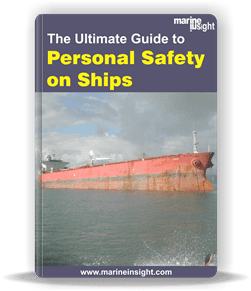
Free eBook – The Ultimate Guide to Personal Safety on Ships
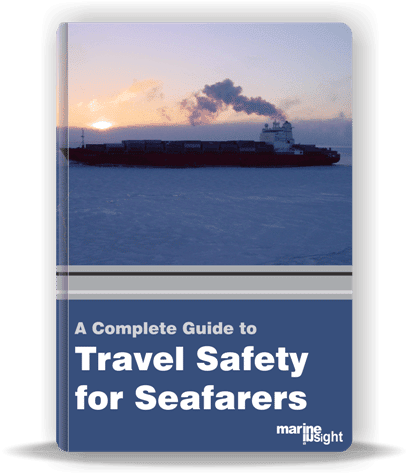
New eBook Launched – A Complete Guide to Travel Safety for Seafarers (With FREE Checklists)

Download LR’s FREE Guide: A Master’s Guide to Container Securing
Daily maritime news, straight to your inbox.
Sign Up To Get Daily Newsletters
Join over 60k+ people who read our daily newsletters
By subscribing, you agree to our Privacy Policy and may receive occasional deal communications; you can unsubscribe anytime.
Related Posts
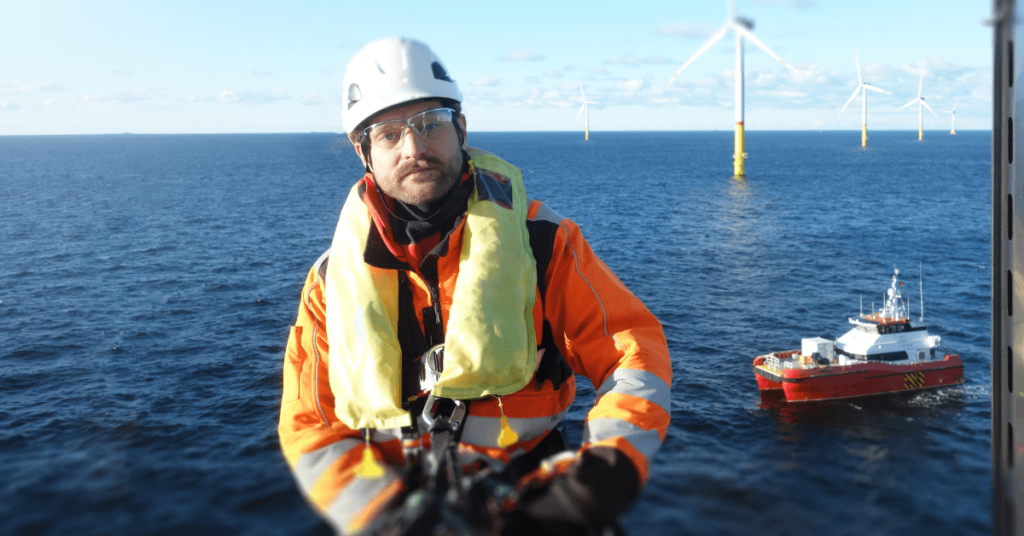
What is Basic Offshore Safety Induction and Emergency Training (BOSIET)?

Asbestos on Ships: Is the Toxic Still in Use?
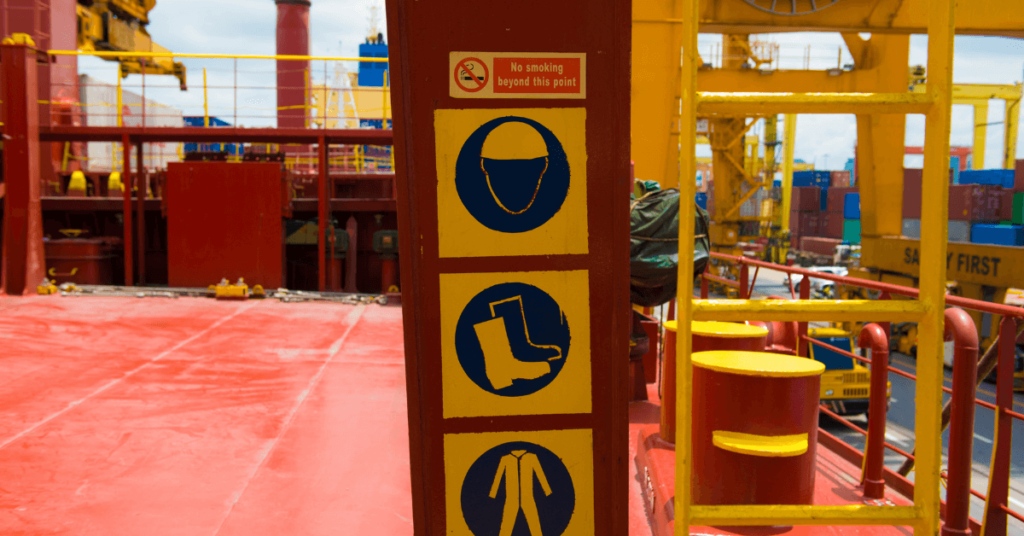
8 Maritime Systems That Ensures Ship Safety And Security

What are the Duties of Ship’s Company Security Officer (CSO)?
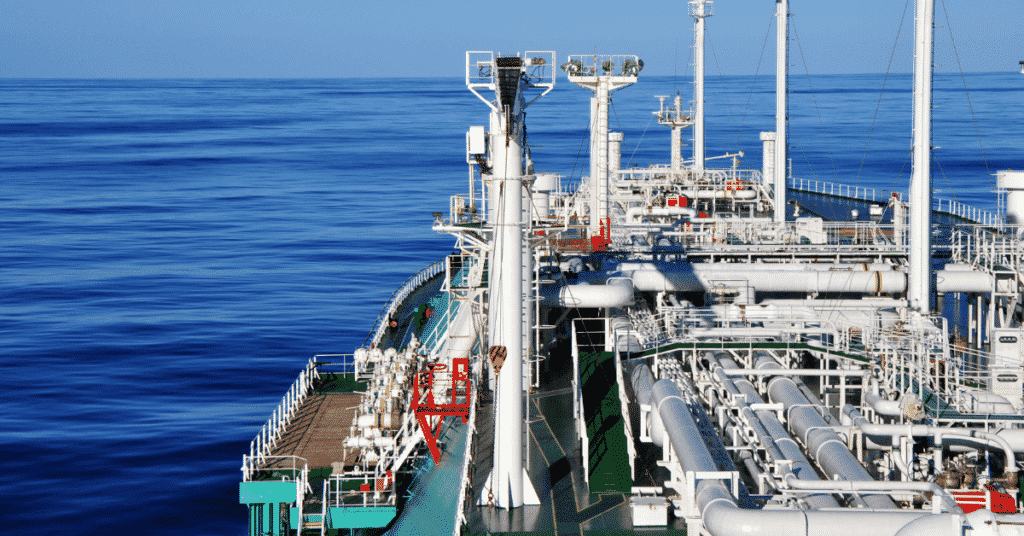
10 Safety Precautions To Take While Handling Inert Gas System On Ships
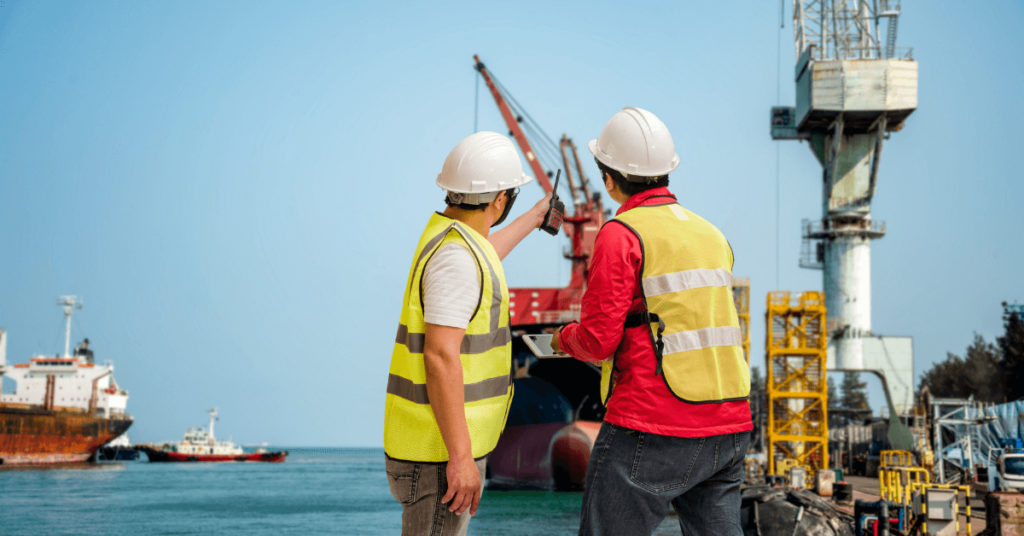
What is Harmonised Survey System for Ships?
Be the first to comment, 17 comments.
My name is Sinqobile Gwala I am 25 years .I like to do the safety studies. I live at Empangeni in South Africa.My current job is sales representative
My name is Sunday mavuso at ermelo mpumalanga,,I’m interested in a ship safety officer…
Hi Im abdul shwackydaz, i like to do security ship officer job. My previous experience jobs is Mcdonalds bugger flipper, Shelf item filler stacker man and now working loan man for small family loan business. Want to train security ship course to work with seaman. Always loved seaman!!!! Please advise on best course to be on ship surrounded by seaman?? All my heart wishes and thank you
Please advise what section of the International Safety Management (ISM) code mention’s every ship must appoint a ship safety officer (SSO). Thnx
i am 27 years of age and m looking for a safety officer job i have 1 year experience as safety rep , i did my safety studies at Nosa .I have OHS Act 18001 – Hira -System tools – ashepp – She Rep – Samtrac from Nosa. My numbers are 0749150184.
I currently did my imo saftey courses and i want to be a safety officer onboard ship. What courses should i offer?
Hi i am farhan 25 year old currently working in qatar as a safety officer constriction field i have 2 year exp frm india and 2 year in qatar so i need job on ship as safety officer(0097433251955) my number
Please register your CV here: https://jobs.marineinsight.com/
Hi sir. I am one of the Safety Officer. I have NEBOSH, IOSH, HABC LEVEL 2 FIRE SAFETY. ADOHSM, A.H.A FIRST AID HEART SAVER AMERICAN, H2S AND SO2 AWARENESS, FIRE WARDEN ETC. I HAVE A GOOD EXPERIENCE OF WORKING IN THE GULF AND INDIA. PLEASE PROVIDE ME WITH THE OPPORTUNITY TO WORK WITH YOU AS A SAFETY OFFICER. MY CONTACT NUMBER IS :-+919411703304. . MY EMAIL :[email protected]. Please contact me on the above mentioned and provide me with the opportunity to work with you as a SAFETY OFFICER.
Hi sir. I am one of the Safety Officer. I have NEBOSH, IOSH, HABC LEVEL 2 FIRE SAFETY. ADOHSM, A.H.A FIRST AID HEART SAVER AMERICAN, H2S AND SO2 AWARENESS, FIRE WARDEN ETC. I HAVE A GOOD EXPERIENCE OF WORKING In GULF AND INDIA .PLEASE PROVIDE ME WITH THE OPPORTUNITY TO WORK WITH YOU AS A MARINE SAFETY OFFICER. MY CONTACT NUMBER IS :-+919411703304. MY EMAIL IS :[email protected]. Please contact me on the above mentioned and provide me with the opportunity to work with you as a “MARINE SAFETY OFFICER “.I WILL SURELY PROVIDE YOU WITH BEST AND LOYAL SERVICE .Waiting for your call. MARINE SAFETY OFFICER (RAMESH GIRI)
Please check our job board- https://jobs.marineinsight.com/
Please advise what section of the International Safety Management (ISM) code mention’s every ship must appoint a ship safety officer (SSO). I finish my safety course and i have 4.5 years expereance in construction safety .Thnx
My name is Sohan Tanaji Borge. I have 5 year’s of IT industry experience. I did NEBOSH,IOSH, HUMAN FOCUS courses. I also want to work on a ship as a safety officer.
Please suggest me what should i do??
Thanks & Regards Sohan
Hi, am Edwin Subam and am doing my third year studying Bachelor of Environmental Health and Science. I am really interested to work as a safety marine officer after I graduate from my bachelor degree programme. Should that be possible if I can be advise about the requirement for the marine safety officer?
pls tell me about that safty officer i m intrested in this field im mechanical engi from india
Hi Niket Safety officer is another designation and role played by ships officer
I have completed masters in physiotherapy..have to work in marine sight..as medical officer how to apply
Leave a Reply
Your email address will not be published. Required fields are marked *
Subscribe to Marine Insight Daily Newsletter
" * " indicates required fields
Marine Engineering
Marine Engine Air Compressor Marine Boiler Oily Water Separator Marine Electrical Ship Generator Ship Stabilizer
Nautical Science
Mooring Bridge Watchkeeping Ship Manoeuvring Nautical Charts Anchoring Nautical Equipment Shipboard Guidelines
Explore
Free Maritime eBooks Premium Maritime eBooks Marine Safety Financial Planning Marine Careers Maritime Law Ship Dry Dock
Shipping News Maritime Reports Videos Maritime Piracy Offshore Safety Of Life At Sea (SOLAS) MARPOL
WAIT! Did You Download 13 FREE Maritime eBooks?
Sign-up and download instantly!
We respect your privacy and take protecting it very seriously. No spam!
WAIT! Did You Download 12 FREE Maritime eBooks?
This is the announcement bar for Poornima to test the Close Button. It will expire May 31 2024.
- Pre-Cruise FAQ
- Onboard FAQ
- Post-Cruise FAQ
- Cruisetours FAQ
- Special Offers Sign Up
- Cruise Deals
You have been logged out
Your window will update in 5 secs
Onboard Employment FAQ
Are you interested in joining the thousands of worldwide employees who are proud to be part of the Princess Cruises family? We are committed to being an employer of choice and understand that our Consummate Hosts need to be supported, empowered, and recognized.
We also understand that working at sea can be a challenging new opportunity. Here are answers to some essential questions you might have when considering cruise ship employment.
- What are the requirements to work onboard?
What is a C1/D visa?
How do i get a medical certificate, which ship will i be assigned to, how do i get to and from the ship i am assigned to, do i need travel insurance, how long will i be onboard, can i get off and go home during the contract, will i have my own room, what is the power voltage in my cabin, can i drink alcohol onboard, is there a drug policy, is there a curfew, can i bring a family member or friend onboard, will i have access to guest areas and amenities during my time off, once onboard, how do i stay in touch with my friends and family back home, can i have mail delivered to the ship, is there an atm onboard to use, will i have to pay taxes, can i send money home from onboard, how do i pay for items onboard, how do i do laundry, what if i miss the ship in port, what happens if i get sick while working onboard, can i visit the ports while working onboard, how do i apply to work onboard, what are the requirements for onboard employment.
While specific position requirements depend on the job you are interested in, there are some essential requirements that all crew must meet to work onboard:
- Be 21 years of age or older
- Be able to pass a criminal background check
- Hold a valid passport
- Have a US C1/D visa (if you are not a Canadian or US citizen/resident)
- Have a Princess-specific pre-employment medical exam certificate
- Meet the English fluency requirements relevant to your position
Also known as a seaman's visa, some nationalities need this to work onboard a ship and travel to certain countries. This visa normally lasts between two and five years. You will be required to make an appointment at your nearest US Embassy to gain this visa; all paperwork for the appointment will be supplied by your manning agency.
This extensive examination is at the employee's expense and can be conducted through one of Princess's recommended medical facilities—you'll be advised which one is closest to you. Once this is completed and approved by our corporate Medical department, you are cleared to travel and work onboard.
Shipboard employees are scheduled to vessels based on operational need. This means you could be assigned to any one of our vessels in the fleet depending on where a position is open at the time you are travel-ready. After your first assignment, we will be able to provide details about the next assignment after your leave period.
At the beginning of each contract Princess Cruises will provide flights from your designated airport to your assigned ship. At the completion of your contract, Princess will arrange for your travel back home as well. It is your responsibility to get to the airport from your home, but from there we will provide any necessary accommodations and/or transportation to and from the ship.
While you are covered medically in Los Angeles and onboard the vessel, we suggest you purchase basic travel insurance to cover the cost of lost luggage or injuries that could result from shoreside activities.
Contract lengths vary by position but range between four and ten months. After each contract you will receive approximately 60 days of vacation before your next assignment. Your daily work schedule while onboard will depend on your particular position, but you can expect to work seven days a week and anywhere between 10-13 hours per day.
Time off during the contract is not permitted. In case of family emergencies, Princess Cruises does understand that additional time at home may be needed and does accommodate these requests on a case-by-case basis.
Accommodations vary depending on the ship and position. Those in non-management positions generally share a cabin with one to three other roommates whereas those in most management positions are entitled to a single cabin. Cabins include a storage space, TV, and DVD player.
All vessels have 120v US power and some vessels also have 220v European power.
Yes, alcohol is available for purchase during time off. However, Princess Cruises has a strict alcohol limit and at no time can a crew member be intoxicated.
Princess has a zero-tolerance drug policy. All crew are subject to random and reasonable-suspicion drug testing. Violation of these policies will result in termination.
There is no set curfew. However, crew who are out late should be respectful of other crew members and guests nearby.
Crew members who meet specific length-of-service criteria have the option of requesting "relatives travel," a benefit that allows family members to sail onboard for a limited period of time. Some restrictions may apply.
While some officer-level positions do allow restricted access to guest areas, most facilities are for guests only. However, we have a variety of crew-only facilities, such as a crew pool, whirlpool, gym, bar, and Crew Club, which is a communal room where you can gather to watch movies, play games, sing karaoke, and much more!
Postal mail services are available while onboard. You will also have access to computers in the crew training areas. Wi-fi Internet is also available in the crew areas if you choose to bring your own laptop or tablet. Princess offers discounted rates for phone and Internet cards so you can stay in touch with those at home. But remember that satellite capabilities are sometimes limited while the ship is at sea.
You will be provided with mailing addresses for ports where mail can best be delivered.
There is an ATM in the guest areas; an ATM charge will apply. You can also cash checks in the Crew Office onboard to get cash.
US citizens will have federal taxes automatically deducted and may be required to pay state taxes, if applicable. All other nationalities are responsible for filing their own tax forms upon returning to their home countries (as they are self-employed).
You can wire money via the Crew Purser's office. Details are available onboard and rates may vary.
You will be provided with a bar account number, which is your personal number for the duration of your contract onboard each ship. As the entire vessel is cashless, even for guests, you will provide your account number at the bars, salon, and shops in guest areas. In the Crew Bar you can purchase a CrewCard and add money onto it for purchases. At the end of every month you will be required to settle your account.
There are crew laundry facilities where the washers and dryers are free of charge—you just provide the soap. You can also use the dry cleaning onboard, but there is a nominal cost.
Crew members who miss the ship should contact the ship's Agent who will be at the port (the address and phone number are always in the Princess Patter, a daily newsletter for our guests). The Port Agent will arrange transportation to the ship's next port of call. However, it is the responsibility of crew to pay these transportation costs. Crew may be disciplined for the offense and could be terminated. Depending on the port all crew members are required to be back onboard half an hour to an hour prior to sailing time.
While onboard, all crew are medically covered and can visit the Medical Clinic for health concerns. If you need to be medically disembarked during your contract, Princess will provide transportation to a land-based medical facility and repatriate you back home.
If you are not scheduled to work during the time the ship is in port, you can disembark the ship with your supervisor’s approval. Occasionally, there are crew-specific activities or tours to participate in.
Safety requirements dictate that a certain number of crew members be present on each vessel at all times. As such, there may occasionally be times when, although not scheduled to work, you will be required to remain onboard while the ship is in port.
Princess Cruises recruits globally through authorized hiring partners. Find a hiring partner located near you.
Once you contact the authorized hiring partner, you can get answers to questions regarding the application process and which positions are currently open in your region.

Cruise Ship Safety
Cruise ship safety is regulated by international maritime laws. Those laws govern everything about safety equipment on cruise ships as well as the training and certification of its crewmembers. Here’s what you need to know.
International Regulations on Cruise Ship Safety
International Maritime Organization (IMO) is a United Nations organization responsible for improving safety onboard all vessels, including cruise ships. This governing body has developed rules and regulations for all officers and crews to adhere to such as Safety of Life at Sea (SOLAS) and Standards of Training, Certification and Watchkeeping (STCW). The main objective is to specify the minimum standards of safety for a ship.
The STCW was first implemented in 1978 (STCW78), amended in 1995 (STCW95) and amended again in 2010 STCW2010 [ PDF ] The focus is on ensuring that all ships have officers and crewmembers with the necessary licences, certification and training. The latest STCW amendments have started being implemented on cruise ships since January 2012. This additional set of regulations has made changes to such issues as rest hours for seafarers, professional training and certification, medical fitness standards and alcohol abuse.
Port State Control and Flag State Control make sure that the vessels are complying with all of the rules and regulations. Port authorities such the United States Coast Guard (USCG), Canadian Coast Guard (CCG), or Maritime and Coast Agency in the UK (MCA) make sure that ships are compliant in their respective waters. Additionally, depending on the flag that the ship flies determines the country that ensures their own compliance through inspections, too.
Safety Equipment on Cruise Ships
A cruise ship is not a land-based resort where you can just call the fire department and evacuate the hotel. An emergency at sea is an extraordinary circumstance that requires additional safety equipment to be available onboard. According to SOLAS, cruise ships must meet the minimum requirements of safety when it comes to navigation, communication, lifeboats, fire detection devices, and fire extinguishing apparatus.
According to Cruise Lines International Association ( CLIA ), on an average cruise ship there are approximately, five fire-fighting teams with advanced fire-fighting training, 4,000 smoke detectors, 500 fire extinguishers, 16 miles of sprinkler piping, 5,000 sprinkler heads and 6 miles of fire hose.
Fire zones separated by fire screen doors prevent fire and smoke from penetrating between each zone and cruise ships are outfitted with high fog controls to suppress and extinguish fires. In the case of an abandon ship, there are more than enough lifeboats, liferafts and lifejackets on a cruise ship to accommodate all the passengers and crew.
Safety Training for Cruise Ship Crew
All crew members on cruise ships attend safety training every time they join a ship. This refresher training includes what to do in case you see a fire, how to use a fire extinguisher, how to put on your lifejacket, where the muster stations are, dangers of watertight doors, and lifeboat/liferaft familiarization. Crew members are also instructed on emergency signals as follows:
Each crew member will have an assigned emergency duty. The head of each department is typically responsible for educating their own crew members on what they are supposed to do during an emergency.
Select crew members, typically officers of different departments, have emergency duties that require additional training. For example, the Certificate of Proficiency in Survival Craft (CPSC) is a course that teaches crew members how to be the first or second in charge of a lifeboat. This person learns how to lower and operate a lifeboat in case of an emergency.
Fire teams onboard are typically made up of officers and petty officers that have had advanced fire fighting training. The on-scene commander in charge of the fire is usually the Safety Officer. Although, if the fire is in an Engine Room space then the on-scene commander is typically the Staff Engineer.
Simulated emergencies such as a fire onboard are practiced on a regular basis to exercise the officers and crew in their emergency duties. In addition, there are in-port manning drills that exercise those that may be covering alternate emergency duties. Additional training with lifeboat and liferaft parties is conducted regularly as well.
Cruise Vessel Security and Safety Act 2010
The Cruise Vessel Security and Safety Act is legislation to establish requirements to ensure the security and safety of passengers and crew on cruise vessels. Although much of the cruise industry already followed strict regulations, policies and procedures when it came to safety and security, the United States passed a law that would codify the regulations.
In fact, the USCG testified before Congress in 2007 that it doesn’t believe that Americans are at any significant crime risk while onboard cruise ships. Cruise ship design is already internationally mandated by SOLAS to maximize cruise ship safety, plus port state and flag state inspections are done to verify compliance in safety equipment and training. In addition, all crew undergo rigid pre-employment screening.
Staying Safe on a Cruise Ship
Although there are websites and naysayers that love to shine a negative spotlight on the cruise industry, a cruise ship is an extremely safe environment. Of course, wherever and however you travel in the world, you must always exercise caution. One way is to always follow the policies and procedures of the ship you work on.
On a cruise ship you must also be prepared in the event of an emergency. ( Related Article: Crew Role in Cruise Ship Emergency ) At the very least, crewmembers must understand how to put on their lifejacket, the sound of emergency signals, their emergency duty, and where to muster. Learning everything you can about cruise ship safety and security will help you stay safe while you work and live on board a cruise ship.
Cruise Ship Safety Resources
We use cookies to ensure that we give you the best experience on our website.

View Cart Checkout
- No products in the cart.
Subtotal: £ 0.00
Training and certification
- Careers at Sea
Cruise ship industry
Quick links, recruitment process.
CV’s, Letter and Application forms
Interview Guidance
Useful links
Social media
Industry overview
Recruitment
Oil and Gas
Merchant navy, renewable energy, commercial diving, cruise ship training, training and certification required for the cruise ship industry.
Welcome to our section on training and certification required to work onboard cruise ships. Here you’ll find everything you need to know about what is required to work onboard cruise ships.
If you are just starting a career at sea you will need the following mandatory STCW courses:
Elementary First Aid Personal Survival Techniques Personal Safety and Social Responsibilities Fire Prevention and Fire Fighting Proficiency in Security Awareness (as of 1st January 2014)
Although these modules can be done separately it is far more cost effective to be done as a package – the STCW Basic Safety Training package – which will save you over 25%:
STCW-95 Basic Safety Training package
Additional courses to help kick start your career in the cruise industry:
STCW Proficiency in Designated Security Duties
Crowd Management STCW Crisis Management & Human Behaviour
Passenger Safety (get in touch directly for more information)
What else will you need?
ENG1 Medical certificate – Find your nearest approved doctor in the UK (fixed fee of £80)
Seamans Discharge book and card – Click here for more information
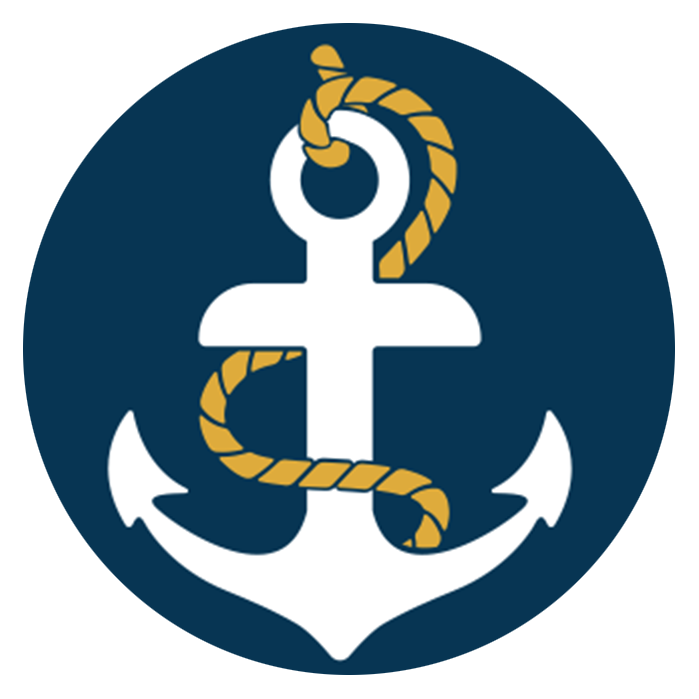
NEED HELP Deciding a course?

- Blog SQLearn blog posts
- E-learning Company Profile
- Quality Policy
- Participation in EU projects
- Career opportunities
- Maritime Training Solutions Overview
- Maritime CBT online library
- Training Management System (TMS)
- Seafarers Competence Management System
- Vetti: Vetting Inspections preparation software
- Maritime Training AI Assistant CaptAIn
- Virtual Reality Training
- Online CBTs for Rightship Inspection Questionnaire (RISQ)
- Online CBTs for OCIMF SIRE 2.0 inspections
- CBT training matrix for Tanker Management Self Assessment (TMSA)
- STCW Basic Training Online
- STCW courses for Cruise Ships
- Schedule a call
- STCW courses ESHOP
- E-learning Demos
- Ship Safety Officer (SSO)
- Seafarer e-learning courses
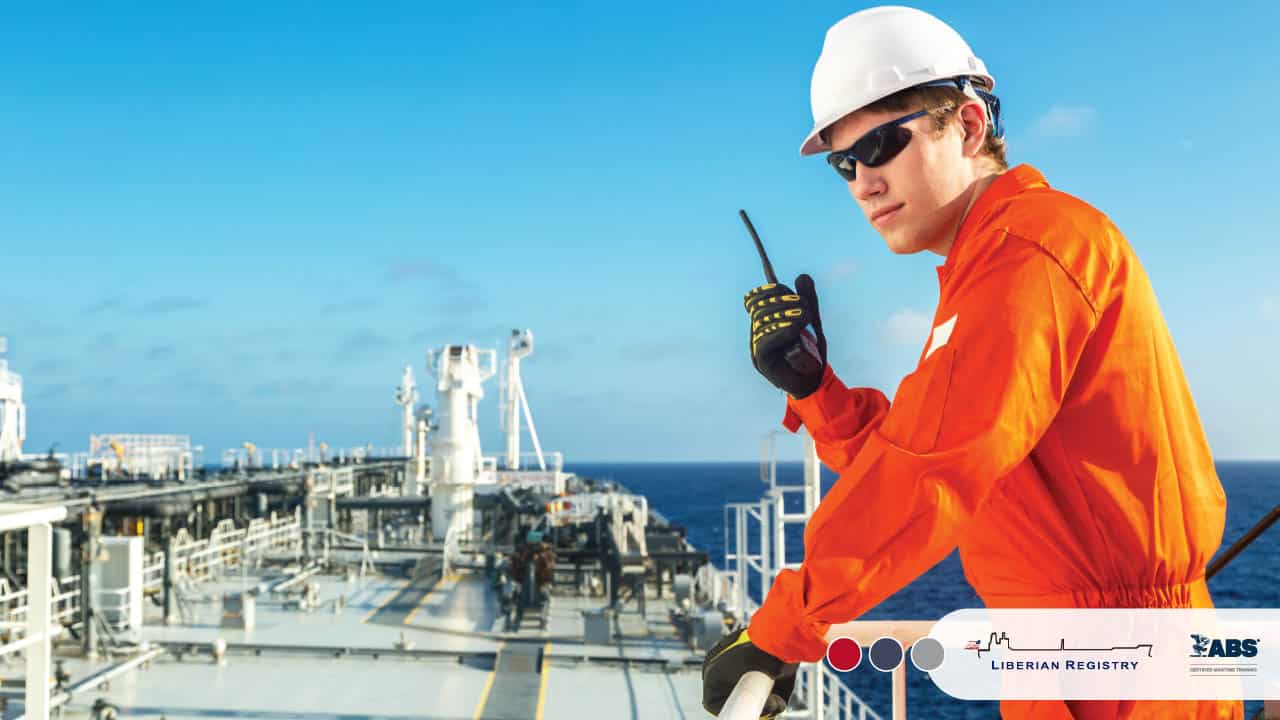
Ship Safety Officer (SSO) online course: under the International Safety Management (ISM) code, every ship must appoint a Ship Safety Officer (SSO) who has the knowledge, experience, and skills to look over the important safety issues related to ship safety and crew’s well-being.
Highlights:
- Understand the requirements of the International Management System (ISM).
- Apply the requirements of the Safety Management System on board a ship (SMS).
- Organize safe operations on board a ship and prevention of pollution.
- Apply the methods of conducting additional training on board a ship for safety and environmental protection.
- Safety investigation of Casualties & Incidents.
For B2B inquiries or more information regarding this online course please get in touch with our Sales Team at [email protected] or at 00302107778877.
Legislation & References:
- STCW-78, as amended
- STCW Code, as amended
- SOLAS-74, as amended
- MARPOL 73/78, as amended
- ILO-Maritime Labour Convention 2006 (MLC)
- IMO ISM Code
- UKMCA “Code of Safe Working Practices For Merchant Seamen”
- TMSA Elements 9
- IMO Model Course 3.11
Who should attend: Existing and prospective Safety Officers
Duration: 5h
Certificate: ABS & Liberia
You may also be interested in these online courses: STCW Security Awareness Training , STCW Designated Security Duties (DSD) , STCW Ship Security Officer (SSO) and Company Security Officer

Privacy Overview
Winter is here! Check out the winter wonderlands at these 5 amazing winter destinations in Montana
- Plan Your Trip
How To Become A Cruise Ship Officer
Published: December 10, 2023
Modified: December 28, 2023
by Trescha Earls
- Travel Guide
Introduction
Embarking on a cruise is a dream for many people – the idea of sailing across the ocean, exploring exotic destinations, and enjoying luxurious amenities is undeniably appealing. But have you ever considered what goes on behind the scenes of these floating cities? Enter the cruise ship officer, a crucial position responsible for ensuring the smooth operation and safety of the vessel.
A cruise ship officer is a highly skilled professional who plays a vital role in managing various departments and ensuring the overall satisfaction of guests. From managing the crew to overseeing onboard activities, a cruise ship officer serves as a jack-of-all-trades, making sure that every aspect of the cruise runs seamlessly.
But what exactly does a cruise ship officer do? What are the educational requirements and skills needed to excel in this position? In this article, we will explore the world of cruise ship officers, their responsibilities, and the career opportunities they offer. Whether you’re a seasoned maritime professional seeking a new adventure or someone looking to break into the cruise industry, this article will provide you with valuable insights to help you navigate the path towards becoming a cruise ship officer.
Stay tuned as we delve into the fascinating world of cruise ship officers, uncovering the secrets behind their roles, responsibilities, and the challenges they face on a daily basis. Discover the education and training required, the skills needed to succeed, and the process of applying for a position as a cruise ship officer. So, grab your life jacket and get ready to embark on a thrilling journey into the world of cruise ship officers!
What Does a Cruise Ship Officer Do?
As a cruise ship officer, your responsibilities are vast and varied. You will be entrusted with managing different aspects of the ship’s operations, ensuring the safety and comfort of both passengers and crew. Let’s take a closer look at some key tasks and duties that fall under the purview of a cruise ship officer:
- Supervising Crew: As a cruise ship officer, one of your primary responsibilities will be overseeing the crew members in various departments, such as housekeeping, food and beverage, entertainment, and guest services. You will be responsible for ensuring that each department runs smoothly and efficiently, and that the crew members are performing their duties to the highest standards.
- Ensuring Safety: Safety is paramount on any cruise ship, and as a cruise ship officer, you will play a critical role in maintaining a safe environment for passengers and crew. This includes conducting safety drills, monitoring compliance with safety regulations, and responding to emergencies or incidents that may arise on board.
- Customer Service: Providing exceptional customer service is a key aspect of being a cruise ship officer. You will interact with passengers, addressing any concerns or issues they may have, and ensuring that their experience on board exceeds their expectations. This may involve organizing special events, coordinating shore excursions, or resolving any disputes or complaints that may arise.
- Administrative Duties: Cruise ship officers are also responsible for various administrative tasks, including maintaining records, preparing reports, and handling financial transactions. You will need strong organizational and administrative skills to effectively manage these responsibilities.
- Emergency Response: In the event of an emergency, cruise ship officers are trained to handle crises and ensure the safety of all on board. This may involve coordinating emergency procedures, directing passengers to designated assembly points, or communicating with authorities onshore.
These are just a few examples of the wide range of responsibilities that cruise ship officers undertake. It is a dynamic and challenging role that requires strong leadership skills, excellent communication abilities, and the ability to think and act quickly under pressure.
Now that we have a better understanding of the tasks involved, let’s explore the educational and training requirements to become a cruise ship officer.
Education and Training Requirements
Becoming a cruise ship officer requires a combination of education, training, and experience. While there is no specific degree or program exclusively for cruise ship officers, obtaining a degree or diploma in a relevant field can be beneficial. A background in hospitality, tourism, maritime studies, or business administration can provide a solid foundation for this career.
Many cruise lines prefer candidates with a bachelor’s degree in a related field, but some may accept an associate’s degree or relevant vocational training. It is also essential to hold the necessary certifications and licenses required for the position, such as a merchant mariner’s credential and STCW (Standards of Training, Certification, and Watchkeeping for Seafarers) certification.
In addition to formal education, practical experience is highly valued in the cruise industry. Entry-level positions in the hospitality or maritime industry, such as working in a hotel or restaurant, can provide valuable experience and insights into the industry’s operations. Gaining experience in customer service, leadership, and teamwork is also advantageous.
Once you meet the educational requirements, it is crucial to undergo specialized training programs offered by cruise lines or maritime academies. These training programs provide comprehensive knowledge and practical skills necessary to excel as a cruise ship officer. Topics covered in these programs often include safety procedures, emergency response, crew management, guest services, and ship operations.
Furthermore, cruise lines typically have their own specific training programs that newly hired officers must complete before starting their assignments. These programs offer a deeper understanding of the company’s policies, procedures, and service standards, ensuring officers are well-prepared to perform their duties effectively.
It is important to note that multicultural sensitivity and foreign language skills are highly valued in the cruise industry. Being able to communicate effectively with a diverse range of passengers and crew members from various countries and cultures can greatly enhance the guest experience and contribute to a harmonious onboard environment.
Overall, education, training, and relevant experience are crucial for a successful career as a cruise ship officer. Obtaining the necessary qualifications, continuously seeking professional development opportunities, and gaining practical experience will increase your chances of landing the desired position and thriving in this dynamic industry.
Skills and Qualifications
Being a cruise ship officer requires a unique set of skills and qualifications to effectively perform the duties and responsibilities of the role. While technical expertise and industry-specific knowledge are essential, there are also several transferable skills that are highly valued in this profession. Let’s explore some of the key skills and qualifications that are important for a cruise ship officer:
- Leadership: As a cruise ship officer, you will be responsible for supervising and managing a team of crew members. Strong leadership skills are crucial in order to effectively delegate tasks, motivate the team, and ensure that everyone is working together towards a common goal.
- Customer Service: Providing exceptional customer service is at the core of being a cruise ship officer. You must have excellent interpersonal skills and the ability to handle guest inquiries, complaints, and requests with professionalism and a customer-centric mindset.
- Communication: Effective communication is key in the cruise industry, as you will be interacting with guests and crew members from diverse backgrounds. Clear and concise communication skills, both verbal and written, are essential for ensuring smooth operations and resolving any issues that may arise.
- Teamwork: Cruise ships are like small communities, and teamwork is crucial for a successful operation. You will need to collaborate with various departments and work together with your colleagues to ensure that all aspects of the cruise are running smoothly.
- Problem-Solving: The ability to think on your feet and effectively solve problems is a vital skill for a cruise ship officer. From addressing guest complaints to handling emergencies, you must remain calm, resourceful, and able to make quick decisions in high-pressure situations.
- Organizational Skills: Managing multiple tasks and responsibilities, such as coordinating events, overseeing crew schedules, and preparing reports, requires excellent organizational skills. The ability to prioritize, stay organized, and meet deadlines is crucial for success in this role.
- Adaptability: Working on a cruise ship means being in an ever-changing environment. You must be adaptable and flexible, as schedules, itineraries, and guest needs can change at a moment’s notice. The ability to adapt to different cultures, customs, and environments is also essential.
- Attention to Detail: A keen eye for detail is necessary for a cruise ship officer to ensure that all operations are carried out to the highest standards. From safety procedures to guest requests, paying attention to the small details can make a big difference in delivering an exceptional experience.
In addition to these skills, there are certain qualifications and requirements that cruise lines typically seek in their officers. These may include holding certifications such as a merchant mariner’s credential, STCW certification, and medical certifications. Fluency in multiple languages and previous experience in the hospitality or maritime industry are also often preferred.
By possessing a combination of these skills and qualifications, you will be well-equipped to excel as a cruise ship officer and provide an exceptional experience for both passengers and crew.
Applying for a Position as a Cruise Ship Officer
So, you’ve decided to pursue a career as a cruise ship officer? Great choice! Now, let’s dive into the process of applying for a position in this exciting industry.
1. Research and Select Cruise Lines: Start by researching different cruise lines and their requirements. Each cruise line has its own recruitment process and preferred qualifications. Determine which cruise lines align with your career goals and interests.
2. Resume and Cover Letter: Prepare a well-crafted resume that highlights your relevant experience, education, skills, and certifications. Tailor your resume to emphasize your customer service, leadership, and communication abilities. Draft a compelling cover letter expressing your passion for the industry and why you are the ideal candidate for the position.
3. Online Application: Most cruise lines have online portals where you can submit your application. Follow the instructions carefully, providing accurate and comprehensive information. Be prepared to upload your resume, cover letter, and any required documents or certifications.
4. Interviews: If your application is shortlisted, you may be invited for an interview. This can be conducted over the phone, via video call, or in person, depending on the cruise line’s preference. Prepare for the interview by researching the company, practicing common interview questions, and showcasing your knowledge and enthusiasm for the cruise industry.
5. Medical Examinations: Cruise lines have strict medical requirements to ensure the safety and well-being of passengers and crew. You may be required to undergo a thorough medical examination to assess your fitness for the position. This may include physical exams, drug tests, and vaccinations.
6. Background and Reference Checks: Cruise lines also conduct background checks and verify your employment history and references. Make sure your references are aware and be prepared to provide accurate information about your previous work experience.
7. Training Programs: If you are selected for a position, the cruise line will often require you to attend an intensive training program. This program will familiarize you with the company’s policies, procedures, and safety protocols. It may include classroom instruction, simulations, and onboard training.
Remember, the cruise industry is highly competitive, so it’s important to showcase your qualifications, experience, and passion for the industry throughout the application process. Keep an eye out for job postings, career fairs, and recruitment events organized by cruise lines to increase your chances of securing a position as a cruise ship officer.
Now that you know the application process, let’s move on to the next step: the interviewing and selection process.
Interviewing and Selection Process
Once you have submitted your application for a position as a cruise ship officer, it’s time to prepare for the interviewing and selection process. Here’s an overview of what you can expect:
1. Pre-Interview Screening: After reviewing your application, cruise lines may conduct a pre-interview screening to assess your qualifications and suitability for the position. This may involve a phone or video interview or a questionnaire to gather additional information.
2. Interview Formats: The format of the interview can vary depending on the cruise line. It may be a one-on-one interview with a hiring manager, a panel interview with multiple interviewers, or even a group interview with other candidates. The interviews can be conducted in person, over the phone, or via video conference.
3. Interview Topics: The interviewers will ask a range of questions to assess your skills and suitability for the role. Be prepared to discuss your previous experience, leadership abilities, customer service skills, problem-solving capabilities, and your knowledge of the cruise industry. It’s also important to have a good understanding of the specific cruise line you are applying to and their values.
4. Behavioral Questions: Expect to be asked behavioral questions that assess how you would handle various situations. These questions are designed to gauge your ability to handle challenging or stressful scenarios and your approach to problem-solving.
5. Technical Questions: Cruise lines may also ask technical questions related to ship operations, safety practices, emergency procedures, or guest services. Demonstrating your knowledge and understanding of these aspects will showcase your preparedness for the role.
6. Presentation or Role Play: In some cases, the interview process may include a presentation or role-play exercise. This is an opportunity for you to showcase your communication skills, creativity, and ability to think on your feet.
7. Background and Reference Checks: As part of the selection process, cruise lines conduct thorough background checks and verify your employment history and references. It’s essential to provide accurate information and have your references prepared to confirm your qualifications and suitability for the role.
8. Final Selection: After the interview and background checks are complete, the cruise line will make their final decision. If you are offered a position as a cruise ship officer, you will receive an offer letter outlining the details of the job, including salary, contract length, and any additional benefits.
Preparing for the interview and selection process is crucial. Research the cruise line, familiarize yourself with their values and requirements, and practice answering common interview questions. Showcase your passion for the industry, emphasize your relevant experience and qualifications, and demonstrate your enthusiasm for the role of a cruise ship officer.
Now that you’re familiar with the interviewing and selection process, let’s move on to the next step: training and development programs for cruise ship officers.
Training and Development Programs
Once you have been selected as a cruise ship officer, you will typically undergo specialized training and development programs to prepare you for your role on board. These programs are designed to enhance your skills and knowledge, ensure your familiarity with company policies and procedures, and equip you with the necessary tools to excel in your position. Let’s explore the training and development programs that you can expect as a cruise ship officer:
1. Basic Training: The first step in your training as a cruise ship officer is often basic training, which covers essential skills required for working on board. This may include safety and emergency procedures, firefighting, first aid, and survival techniques. Basic training is essential to ensure the safety and well-being of passengers and crew in any emergency situation.
2. Company-Specific Training: Each cruise line has its own set of policies, procedures, and service standards. Therefore, you will undergo training specific to the cruise line you are working for. This training covers areas such as guest services, ship operations, company culture, and the specific roles and responsibilities expected of a cruise ship officer within the company.
3. Leadership Development: As a cruise ship officer, you will be in a leadership position, responsible for supervising and managing a team. Leadership development programs may include workshops or courses aimed at enhancing your leadership, communication, and team-building skills. These programs help you effectively manage your team and create a positive working environment.
4. Continuous Professional Development: The cruise industry is ever-evolving, and as a cruise ship officer, it’s important to stay updated with industry trends and best practices. Continuous professional development programs provide opportunities for ongoing learning and growth. This may involve attending seminars, workshops, or online courses to enhance your knowledge and skills in areas such as customer service, crisis management, or specialized ship operations.
5. Onboard Training: Once you begin your assignment on a cruise ship, you will have an onboard training period. This time allows you to familiarize yourself with the specific ship you will be working on, its layout, and the unique features it offers. You will also receive hands-on training in applying the knowledge and skills you acquired during your training programs to real-life situations on board.
Throughout your career as a cruise ship officer, it’s essential to actively seek opportunities for professional development. This can include attending industry conferences, pursuing advanced certifications, or participating in leadership programs offered by professional organizations in the maritime industry.
Remember, training and development programs are not only aimed at enhancing your skills and knowledge but also at ensuring the highest level of safety, guest satisfaction, and operational efficiency on board. Take full advantage of these opportunities to continually improve and grow as a cruise ship officer.
With your training complete, you are now ready to embark on your journey as a cruise ship officer and fulfill your responsibilities on board. In the following section, we will explore the roles and responsibilities of a cruise ship officer in more detail.
Roles and Responsibilities of a Cruise Ship Officer
As a cruise ship officer, you will take on a range of important roles and responsibilities to ensure the smooth operation of the ship and the satisfaction of the guests on board. Let’s dive into some of the key roles and responsibilities that you can expect as a cruise ship officer:
- Crew Management: One of your primary responsibilities will be overseeing and managing the crew members in various departments, such as housekeeping, food and beverage, entertainment, and guest services. This includes assigning duties, monitoring performance, and providing guidance and support to the crew.
- Guest Services: As a cruise ship officer, you will have direct contact with guests on a daily basis. Your role will involve addressing guest concerns and inquiries, ensuring their needs are met, and providing exceptional customer service. This may include organizing special events, assisting with onboard activities, and resolving any guest complaints or issues that may arise.
- Operational Oversight: A cruise ship is a complex operation with various departments and systems working together. As an officer, you will have a keen eye on ship operations, ensuring that everything is running smoothly and efficiently. This includes monitoring safety protocols, overseeing maintenance and repairs, and supervising the handling of equipment, supplies, and inventory.
- Safety and Emergency Response: The safety and well-being of passengers and crew are of paramount importance on a cruise ship. You will be responsible for enforcing safety regulations, conducting regular safety drills, and ensuring that emergency procedures are understood and followed by all. In the event of an emergency, you will be a key point of contact, coordinating response efforts and providing leadership to ensure the safety and evacuation of all individuals on board.
- Administrative Tasks: Cruise ship officers also handle various administrative tasks. This may include maintaining records, preparing reports, managing budgets, and coordinating with shore-based personnel for logistical support. Strong organizational and administrative skills are essential for managing these responsibilities effectively.
- Staff Training and Development: As a leader on board, you will be responsible for the training and development of your team. This involves identifying areas for improvement, providing ongoing feedback, conducting performance evaluations, and implementing training programs to enhance the skills and knowledge of the crew.
These are just a few examples of the roles and responsibilities that cruise ship officers undertake. It is a multifaceted and dynamic role, requiring strong leadership skills, excellent communication abilities, and the ability to adapt to different situations and challenges that may arise at sea.
Now that you have a better understanding of the roles and responsibilities, let’s explore the unique aspects of life on board a cruise ship and the challenges that come with it.
Life and Challenges on Board
Life as a cruise ship officer offers a unique and rewarding experience, but it also comes with its fair share of challenges. Let’s explore the various aspects of life on board and the challenges that you may encounter:
Living Quarters: On a cruise ship, your living quarters will be limited in space compared to a traditional land-based residence. Cabins are typically compact, and you may be sharing a cabin with another crew member. Adjusting to this communal living arrangement and finding ways to maximize your personal space can be a challenge.
Long Working Hours: Cruise ship officers often work long hours, sometimes exceeding the typical 40-hour workweek. The demands of maintaining operations and ensuring guest satisfaction require officers to be available and responsive around the clock. It’s important to maintain a good work-life balance and find ways to unwind and relax during your downtime.
Isolation from Family and Friends: Working on a cruise ship means being away from family and friends for extended periods of time. This can be emotionally challenging, especially during significant events or holidays. Developing coping strategies, staying connected through technology, and building a support network among your fellow crew members can help alleviate feelings of homesickness.
Cultural and Language Differences: Cruise ships are incredibly diverse, with crew members and passengers from various cultures and backgrounds. Dealing with cultural and language differences can be both enriching and challenging. Developing cultural sensitivity, embracing diversity, and being open-minded are essential in fostering a harmonious onboard environment.
Work-Life Harmony: Balancing work responsibilities with personal needs and maintaining a healthy lifestyle can be a challenge. It’s important to prioritize self-care, engage in activities that bring joy and relaxation, and make the most of your downtime. Staying active, eating well, and managing stress are vital to maintaining overall well-being.
Adapting to a Dynamic Environment: Cruise ships are constantly on the move, visiting different ports and following ever-changing itineraries. Adapting to this dynamic environment, dealing with weather-related changes, and adjusting to new destinations can require flexibility and quick decision-making.
Working Under Pressure: The cruise industry demands a high level of professionalism and efficiency. As a cruise ship officer, you may encounter demanding situations that require you to perform your duties under pressure. Being able to handle stressful situations calmly and effectively is crucial in maintaining a safe and enjoyable experience for guests and crew members.
Despite these challenges, life on board a cruise ship offers incredible opportunities for personal and professional growth. It allows you to explore different parts of the world, immerse yourself in diverse cultures, and develop skills that are invaluable in the maritime industry.
Now that we have discussed the unique aspects of life on board, let’s explore the career advancement opportunities available for cruise ship officers.
Career Advancement Opportunities
Working as a cruise ship officer provides numerous opportunities for career advancement and growth within the maritime industry. Let’s explore some of the paths you can take to advance your career as a cruise ship officer:
Specialization: As you gain experience and expertise in specific areas of cruise ship operations, such as guest services, safety and security, or food and beverage management, you can specialize in these areas. Specializing allows you to develop advanced skills and knowledge, making you a valuable asset to cruise lines looking for officers with specialized expertise.
Management Positions: With proven leadership abilities, you can progress to management positions within the cruise industry. This may include roles such as department head, assistant manager, or manager in various departments, such as guest services, housekeeping, entertainment, or shore excursions. Management positions offer increased responsibilities and opportunities to lead and mentor a team.
Staff Training and Development: If you have a passion for training and development, you can transition into roles focused on staff training and development. This may involve designing and implementing training programs, assessing training needs, and ensuring the professional growth of the crew. This career path allows you to contribute to the industry by nurturing the talents and skills of future cruise ship officers.
Shore-Based Positions: Another option for career advancement is transitioning to shore-based positions within the cruise industry. This can include roles in cruise line headquarters, training academies, or land-based management positions. Shore-based positions provide opportunities to apply your knowledge and experience to oversee operations from a different perspective.
Cruise Line Leadership Programs: Some cruise lines offer leadership programs designed to identify and develop future leaders within the organization. These programs provide specialized training, mentoring, and networking opportunities to fast-track your career progression. Participating in a cruise line’s leadership program can open doors to higher-level positions and executive roles within the company.
Further Education and Certifications: Continuing your education and obtaining advanced certifications can also contribute to career advancement. Pursuing a master’s degree or specialized certifications in maritime management, hospitality, or business administration can provide a competitive edge and open up new opportunities within the cruise industry.
Entrepreneurship: Some experienced cruise ship officers choose to venture into entrepreneurship, leveraging their knowledge and skills to start their own businesses within the cruise industry. This can include providing consultancy services, operating their own cruise ship charter, or establishing innovative ventures related to the cruise industry.
Ultimately, the career advancement opportunities as a cruise ship officer are diverse and varied. It’s important to be proactive, seize opportunities for learning and growth, and continuously update your skills and knowledge to stay relevant in this dynamic industry.
Now that you have a clear understanding of the career advancement possibilities, let’s wrap up our exploration of becoming a cruise ship officer.
Becoming a cruise ship officer is a thrilling and rewarding journey for those with a passion for the maritime industry and a desire to provide exceptional experiences for passengers at sea. Throughout this article, we have delved into the various aspects of what it takes to become a cruise ship officer, from the roles and responsibilities to the training and development programs available.
As a cruise ship officer, you will play a pivotal role in ensuring the smooth operation of the ship, the safety of passengers and crew, and the overall satisfaction of guests. Your leadership skills, customer service abilities, and adaptability to the dynamic nature of cruise ship life will be put to the test daily.
Education, relevant training, and practical experience are crucial in preparing you for this career. Obtaining a degree in a related field, undergoing specialized training, and continuously seeking professional development opportunities will enhance your knowledge, skills, and employability in the industry.
Challenges such as long working hours, living in communal quarters, and being away from loved ones are part of the cruise ship officer lifestyle. However, the opportunities for personal and professional growth, the chance to explore different parts of the world, and the satisfaction of creating unforgettable experiences for passengers make it a highly rewarding career choice.
From your initial application and interviews to your ongoing training and career advancement, there are numerous pathways for growth within the cruise industry. Specialization, management positions, shore-based opportunities, and entrepreneurship are just a few possibilities that can take your career to new heights.
So, if you are ready to embark on an exciting adventure, ready to embrace challenges, and ready to make a difference in the lives of passengers and crew members, consider pursuing a career as a cruise ship officer. Whether you are starting from scratch or looking to advance your existing maritime career, the cruise industry offers a wealth of opportunities for growth, learning, and unforgettable experiences.
So, pack your bags, prepare for new horizons, and chart a course towards a fulfilling and rewarding career as a cruise ship officer!

- Privacy Overview
- Strictly Necessary Cookies
This website uses cookies so that we can provide you with the best user experience possible. Cookie information is stored in your browser and performs functions such as recognising you when you return to our website and helping our team to understand which sections of the website you find most interesting and useful.
Strictly Necessary Cookie should be enabled at all times so that we can save your preferences for cookie settings.
If you disable this cookie, we will not be able to save your preferences. This means that every time you visit this website you will need to enable or disable cookies again.

Cruise Lines
How to become a cruise ship officer.
Table of Contents
Key Takeaways
- Obtain a bachelor’s degree in hospitality management or a related field
- Gain relevant work experience through internships, volunteering, and part-time jobs in the hospitality industry
- Consider your interests and strengths when choosing a specialization within the industry
- Understand the role and responsibilities of a cruise ship officer, including ensuring safety and providing exceptional customer service
Education and Training Requirements

Gaining Relevant Work Experience
Choosing a specialization.
Understanding the Role and Responsibilities
Meeting health and fitness requirements.
Medical Exams and Certifications
Physical fitness expectations, obtaining the necessary certifications, required certifications for officers, training programs available, validity of certifications, developing leadership and communication skills, networking and building industry connections, importance of networking, industry connection strategies, researching cruise ship companies, applying for cruise ship officer positions, necessary qualifications and experience, applying and interview process, interviewing and nailing the selection process, preparing for life at sea, adjusting to the cruise ship lifestyle, advancing your career as a cruise ship officer, navigating challenges and maintaining professionalism, frequently asked questions, what are the salary and benefits typically offered to cruise ship officers, how long is the average contract for a cruise ship officer, are there any age restrictions for becoming a cruise ship officer, can you choose your preferred cruise ship destination or route as a cruise ship officer, what is the average work schedule like for a cruise ship officer.
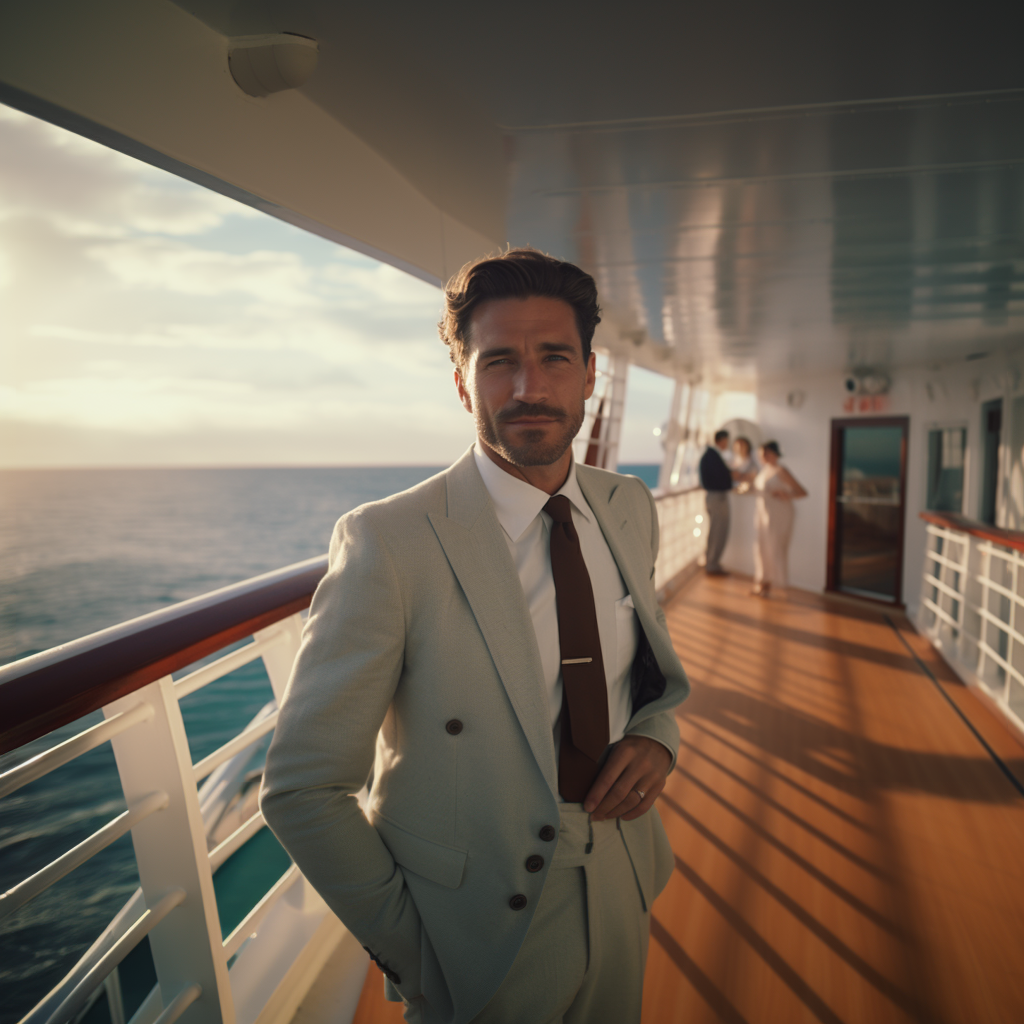
Alfons is the visionary leader and driving force behind Voyager Info’s success. As the Editor in Chief, he brings a wealth of experience and an unwavering passion for travel to the helm of our cruise-centric platform.
With a lifelong fascination for exploring new horizons, Alfons discovered his love for the ocean and cruising at a young age. From sailing across pristine Caribbean waters to embarking on daring expeditions to far-flung destinations, he has amassed a treasure trove of first-hand experiences in the world of cruising.
How Does Westgate Cruise and Travel Work
How Long Do Cruise Ship Workers Work

Alfons is the visionary leader and driving force behind Voyager Info’s success. As the Editor in Chief, he brings a wealth of experience and an unwavering passion for travel to the helm of our cruise-centric platform. With a lifelong fascination for exploring new horizons, Alfons discovered his love for the ocean and cruising at a young age. From sailing across pristine Caribbean waters to embarking on daring expeditions to far-flung destinations, he has amassed a treasure trove of first-hand experiences in the world of cruising.
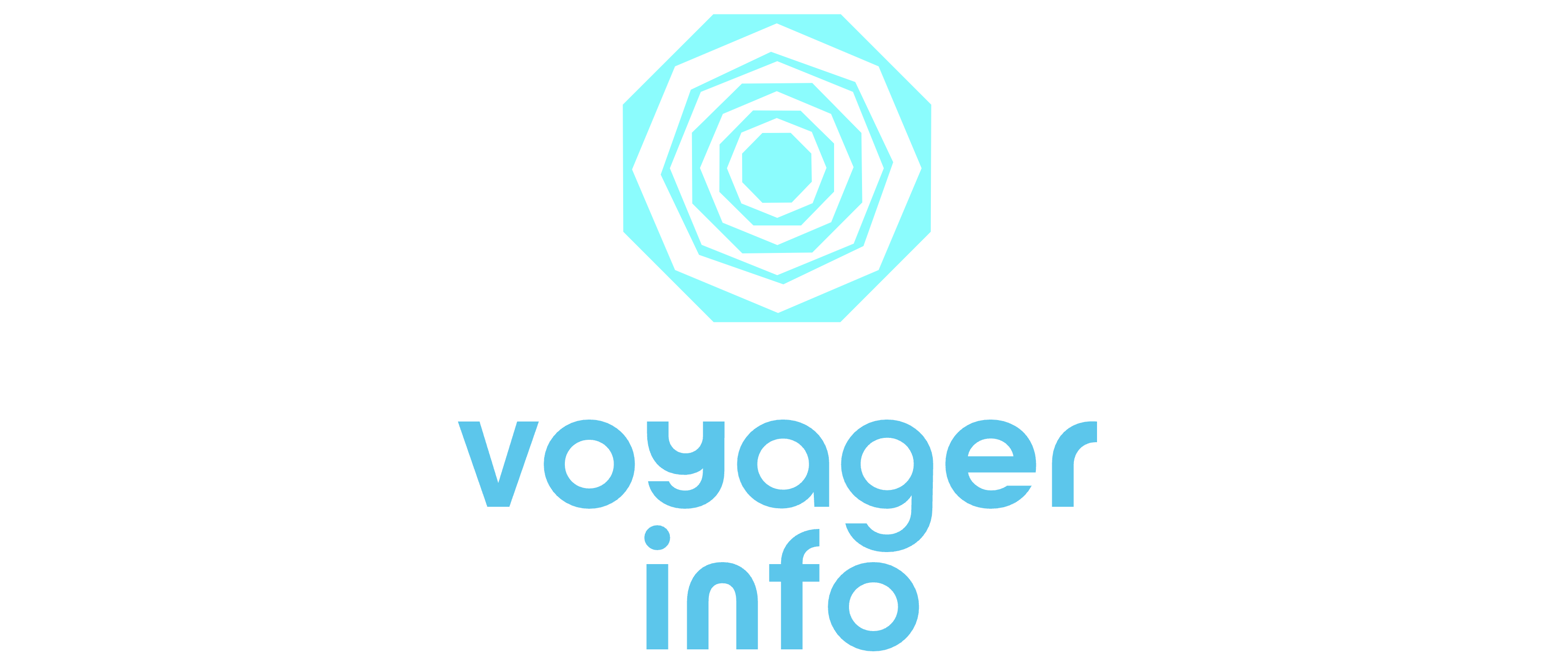
You may like
What is a folio number carnival cruise.
- A folio number on a Carnival cruise is used to manage and track expenses incurred during the cruise.
- It is different from a booking number, which is used to reserve and confirm a cabin on the cruise.
- Reviewing and understanding the folio statement is important to ensure accuracy of charges and to avoid any unexpected expenses.
- The folio number can be used to dispute incorrect charges and seek resolution for any billing discrepancies.
Definition of a Folio Number
Importance of a Folio Number on a Carnival Cruise
How to obtain your folio number.
- Visit the Carnival website and log into your account.
- Navigate to the ‘Manage My Booking’ section.
- Locate your booking details and find your folio number.
Linking Your Onboard Expenses to Your Folio Number
Tracking your spending with your folio number, settling your account with your folio number, benefits of having a folio number, tips for managing your folio number, common questions about folio numbers answered, final thoughts on the significance of a folio number on a carnival cruise, can i use my folio number for purchases made off the ship, what happens if i lose my folio number during the cruise, is it possible to change my folio number once it has been assigned, are there any fees associated with using a folio number on a carnival cruise, can i link multiple credit cards to my folio number for payment, what is the difference between a folio number carnival cruise and an ultra cruise on carnival.

Claire, a creative soul with an unquenchable thirst for storytelling, is an integral part of the Voyager Info team. As a dedicated writer, she weaves captivating narratives that transport readers to enchanting cruise destinations and beyond.
Claire’s love affair with writing began at an early age when she discovered the magic of words and their ability to craft worlds and emotions. Her innate curiosity led her to explore various literary genres, but it was travel writing that truly captured her heart. Drawing inspiration from her own globetrotting adventures and encounters with diverse cultures, Claire embarked on a journey to become a travel writer par excellence.
What Is Included On A Carnival Cruise
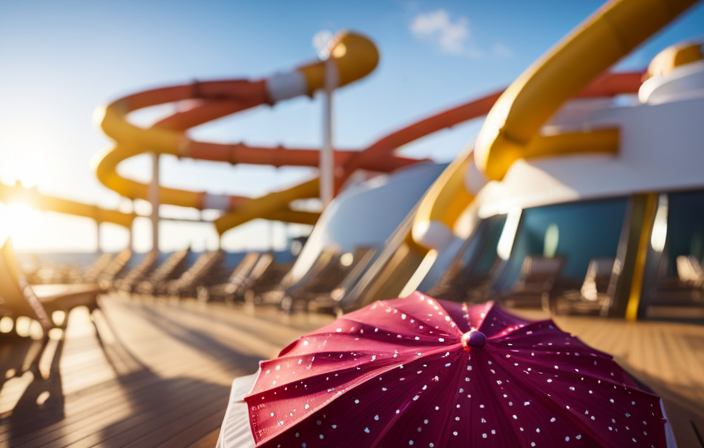
- Carnival Cruise Line offers a wide range of dining options, including casual buffets, elegant sit-down restaurants, and specialty dining experiences with exquisite dishes.
- The entertainment and activities on Carnival cruises are diverse and exciting, with Broadway-style shows, comedy clubs, live music performances, water parks with thrilling slides, and sports facilities for friendly games.
- The accommodations on Carnival cruises are cozy and luxurious, with soft beds, elegant decor, and breathtaking ocean views. There is a range of accommodation types to choose from, all equipped with amenities for comfort.
- Carnival cruises offer a variety of onboard amenities, such as spa and fitness centers for ultimate relaxation, casino and gaming areas for luck and thrill, and shops and boutiques for retail therapy. The spa and fitness center offer rejuvenating treatments, soothing massages, state-of-the-art fitness equipment, and fitness classes led by experienced instructors. The casino and gaming areas provide a wide variety of exciting games and gambling options, including classic table games and slot machines.
Dining Options
Entertainment and activities, broadway-style shows, comedy clubs and live music, water park and sports facilities, accommodations, onboard amenities, spa and fitness center, casino and gaming areas, shops and boutiques, kids and family programs, excursions and ports of call, onboard activities, nightlife and bars, nightclubs and themed bars, live music and dj performances, spa and wellness, customer service and support, what are the safety protocols and measures in place on a carnival cruise, can i bring my own alcohol on board, are there any age restrictions for the different activities and amenities on the cruise, are there any special dining options available for guests with dietary restrictions or allergies, can i bring my pet onboard a carnival cruise, what are the main differences in what is included on a disney cruise compared to a carnival cruise, what is the average age of passengers by cruise line.
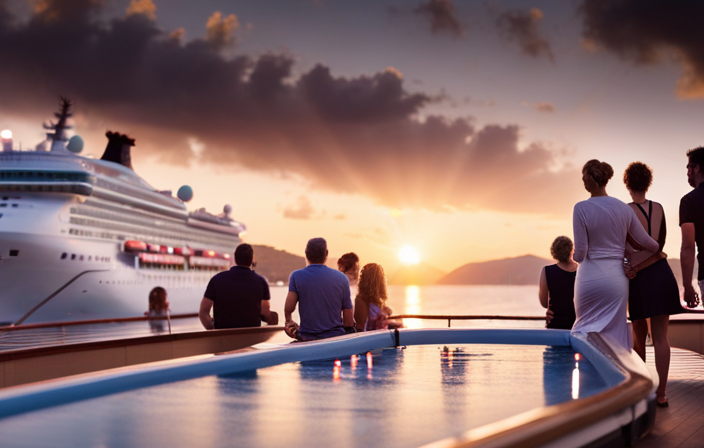
Setting out on an exploration across the immense sea of data, my objective is to reveal the age groups that favor cruising as their choice of holiday. This endeavor highlights the varied experiences provided by different cruise lines.
Like a tapestry woven with different threads, each line attracts a unique blend of passengers, creating a vibrant mosaic of age groups.
Carnival Cruise Line, with its playful spirit and lively atmosphere, appeals to a younger crowd, while Holland America Line exudes elegance and sophistication, drawing in a more mature clientele.
Royal Caribbean International and Celebrity Cruises cater to a wide range of ages, offering activities and entertainment for both the young and the young at heart.
Norwegian Cruise Line and Princess Cruises, on the other hand, strike a balance between relaxation and adventure, attracting passengers from various age brackets.
Join me on this enchanting journey as we explore the average age of passengers across these renowned cruise lines, uncovering the hidden patterns within the data.
- The average age of passengers on Norwegian Cruise Line is around 45 years old, indicating a focus on attracting a younger crowd.
- Princess Cruises caters to a diverse range of travelers of all ages, offering family-friendly experiences and a romantic atmosphere for couples.
- Both cruise lines provide exceptional onboard entertainment, including Broadway-style shows, live music performances, cooking demonstrations, and art classes.
- The onboard amenities of both cruise lines include luxurious spas, swimming pools, fitness centers, and facilities for passenger pampering, catering to the enjoyment and relaxation of all passengers.
Carnival Cruise Line
The average age of passengers on Carnival Cruise Line is typically lower than other cruise lines.
Carnival Cruise Line is known for its vibrant onboard entertainment and family-friendly activities, attracting a wide range of age groups.
With a focus on creating a fun and energetic atmosphere, Carnival offers a variety of entertainment options such as live shows, comedy clubs, and themed parties.
Families can enjoy activities like water parks, mini-golf, and age-specific kids’ clubs.
These offerings appeal to younger travelers, contributing to the lower average age on Carnival Cruise Line.
As we transition into the subsequent section about Holland America Line, it is important to note that while Carnival attracts a younger demographic, Holland America Line tends to appeal to a more mature audience.
Holland America Line
Holland America Line offers a sophisticated atmosphere and elegant dining experience that caters to guests seeking a refined cruise experience. With a focus on gourmet cuisine and top-notch service, passengers can indulge in a luxurious dining experience throughout their voyage.
Additionally, Holland America Line offers a wide range of enrichment programs and cultural activities, allowing guests to expand their knowledge and immerse themselves in the destinations they visit. From lectures by experts to cooking demonstrations and art classes, there is something for everyone to enjoy.
Lastly, Holland America Line boasts relaxing spa and wellness facilities that provide the perfect retreat for guests looking to unwind and rejuvenate. With a variety of treatments and therapies available, passengers can pamper themselves and enhance their overall well-being while cruising.
Sophisticated Atmosphere and Elegant Dining
Indulge yourself in the sophisticated atmosphere and elegant dining of Holland America Line, where you’ll discover a world of refined cuisine and exquisite ambiance. This cruise line is renowned for its sophisticated ambiance, immersing passengers in a luxurious environment that exudes elegance. The fine dining options offered onboard are nothing short of exceptional, with a diverse selection of gourmet dishes prepared by talented chefs. From delectable seafood to succulent steaks, every meal is a culinary delight. To add a touch of sophistication to this description, let me present a table that showcases the variety of dining options available:
Now, let’s move on to the next section, where we will explore the enrichment programs and cultural activities offered by Holland America Line.
Enrichment Programs and Cultural Activities
Get ready to immerse yourself in a world of cultural activities and enrichment programs that will captivate and inspire you throughout your Holland America Line experience. Here are four incredible offerings that showcase the line’s commitment to providing a diverse range of experiences:
By offering such a wide array of enrichment programs and cultural activities, Holland America Line caters to a diverse age demographic, ensuring that passengers of all ages can engage in activities that interest them.
Transitioning into the subsequent section about relaxing spa and wellness facilities, you’ll find an oasis of tranquility where you can rejuvenate and unwind.
Relaxing Spa and Wellness Facilities
Immerse yourself in a world of tranquility and rejuvenation with Holland America Line’s relaxing spa and wellness facilities.
With a wide array of spa treatments and wellness programs, Holland America Line ensures that passengers can unwind and revitalize their mind, body, and soul.
From luxurious massages to invigorating facials, their spa treatments are designed to pamper and provide ultimate relaxation.
In addition, meditation classes are offered to help passengers find inner peace and harmony amidst the hectic pace of cruising.
By incorporating these wellness facilities and programs, Holland America Line caters to passengers who seek a holistic experience during their cruise vacation.
Transitioning into the subsequent section about ‘Royal Caribbean International’, let’s explore another aspect of the cruise experience that focuses on entertainment and recreational activities.
Royal Caribbean International
Passengers on Royal Caribbean International cruises tend to be of a certain age, adding a touch of sophistication to the overall atmosphere. With a focus on providing a diverse range of experiences, Royal Caribbean attracts passengers from all walks of life, but the average age of their passengers tends to be slightly higher compared to other cruise lines.
This can be attributed to the cruise line’s reputation for offering a wide array of activities and amenities that cater to a more mature audience. From the luxurious spa and wellness facilities to the refined dining options and entertainment choices, Royal Caribbean ensures that its passengers have a sophisticated and enjoyable experience.
As we transition into the next section about Celebrity Cruises, it is interesting to note that this cruise line also appeals to a similar demographic, but with its own unique offerings.
Celebrity Cruises
Celebrity Cruises offers a sophisticated and elegant atmosphere that transports you to a world of luxury and refinement. With its dedication to providing exceptional service and unparalleled experiences, Celebrity Cruises attracts a diverse range of passengers.
When it comes to the average age of passengers, Celebrity Cruises appeals to a slightly older demographic compared to other cruise lines. The average age of passengers on Celebrity Cruises is around 55 years old, reflecting the brand’s focus on providing a more refined and upscale experience. This age range aligns with the cruise line’s emphasis on cultural enrichment, gourmet dining, and world-class entertainment.
Celebrity Cruises caters to sophisticated travelers who appreciate the finer things in life.
Moving forward to the subsequent section about Norwegian Cruise Line, we delve into a cruise line that offers a different experience for passengers.

Norwegian Cruise Line
As you step aboard a Norwegian Cruise Line ship, you are transported to a world of boundless freedom and exhilarating adventures, where every moment is a thrilling journey waiting to unfold. When it comes to the average age of passengers on Norwegian Cruise Line, the company caters to a diverse demographic. With a wide range of itineraries and activities, Norwegian Cruise Line attracts passengers of all ages, from families with children to older adults seeking relaxation and exploration. However, the cruise line is known for its vibrant and energetic atmosphere, appealing to a younger crowd. According to industry data, the average age of passengers on Norwegian Cruise Line is around 45 years old. This aligns with the cruise line’s focus on providing a dynamic and youthful experience for its guests. Moving on to the next cruise line, Princess Cruises offers a unique and captivating journey.
Princess Cruises
Embark on a majestic voyage with Princess Cruises and immerse yourself in a world of enchantment and discovery.
When it comes to the average age of passengers, Princess Cruises attracts a diverse range of travelers.
With a focus on providing exceptional onboard entertainment and amenities, Princess Cruises caters to passengers of all ages. From Broadway-style shows and live music performances to cooking demonstrations and art classes, there is something for everyone to enjoy.
The onboard amenities are equally impressive, with luxurious spas, swimming pools, and fitness centers to keep passengers pampered and active during their voyage.
So whether you’re looking for a family vacation or a romantic getaway, Princess Cruises offers an unforgettable experience for passengers of all ages.
Can children and teenagers travel on these cruise lines?
Children and teenagers can travel on most cruise lines, but there are age restrictions and youth programs available. The industry recognizes the importance of catering to all age groups, providing a safe and enjoyable experience for everyone.
Are there any age restrictions or requirements for passengers on these cruise lines?
There are age restrictions and minimum age requirements for passengers on cruise lines. Each cruise line has its own policies, but typically children must be at least 6 months old to sail.
Are there any specific cruise itineraries or ships that cater to older passengers?
There are several cruise itineraries and ships that cater to older passengers. These ships offer specific onboard activities and amenities tailored to their needs, ensuring a comfortable and enjoyable experience for the older demographic.
Is there any information available about the average age of crew members on these cruise lines?
The average age of crew members varies across cruise lines, and it can have an impact on the passenger experience. Younger crew members may bring a more energetic vibe, while older crew members may offer a more experienced and refined service.
Are there any specific onboard activities or amenities that are popular among passengers of a certain age group?
Popular onboard activities and amenities vary by age group. Younger passengers tend to prefer high-energy activities like rock climbing and water slides, while older passengers often enjoy more relaxed options such as spa treatments and wine tastings.
After analyzing the data on the average age of passengers by cruise line, it is evident that each company caters to a distinct demographic.
Carnival Cruise Line, with its vibrant atmosphere and exciting activities, attracts a younger crowd, while Holland America Line appeals to a more mature audience seeking a refined and elegant experience.
Royal Caribbean International and Celebrity Cruises strike a balance between youth and sophistication, targeting a broad range of age groups.
Norwegian Cruise Line and Princess Cruises cater to individuals seeking relaxation and tranquility.
The cruise industry truly offers something for everyone, ensuring a delightful voyage for every traveler.

Affiliate disclaimer
As an affiliate, we may earn a commission from qualifying purchases. We get commissions for purchases made through links on this website from Amazon and other third parties.

What Authentic Teppanyaki Dining Options Are Available on Carnival Horizon?

Unforgettable Solar Eclipse in Antarctica: A Spectacular Celestial Event

How to Experience AmaWaterways' French Wine Flavors in Burgundy

5 Delights to Experience on a Day in Paradise: Jost Van Dyke

Cruising From Baltimore: a Convenient and Relaxing Getaway Guide

What Is The Weather Like On A Transatlantic Cruise In April
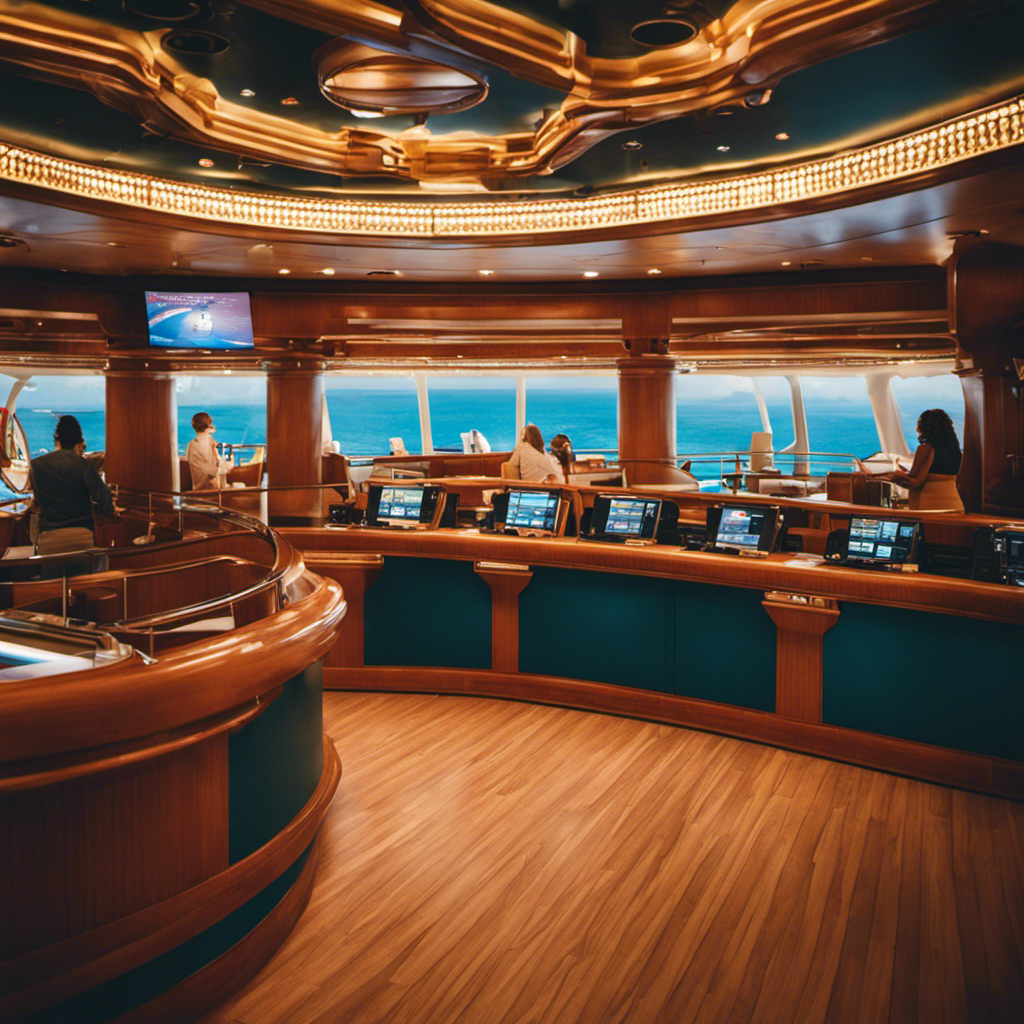
How to Contact Someone on a Carnival Cruise Ship

Decoding Celebrity Cruise Gratuities: Tips, Coverage, and Costs

How Much Do You Tip on a Viking River Cruise

Azamara Onward: Origins, Renovation, and Future Plans
Anthony Bourdain: Unconventional Culinary Icon and Global Influencer

Authentic Tacos and Local Delights: A Culinary Adventure in Cabo San Lucas

Arctic Adventure: Uncharted Destinations With Le Commandant Charcot

Authentic Art, Exciting Auctions: The Ultimate Cruise Ship Experience!

Which Celebrity Cruise Ships Have Been Refurbished

What Drinks Can You Bring On Princess Cruise

How To Turn On Cruise Control Tesla Model 3

How To Set Cruise Control Tesla Model Y
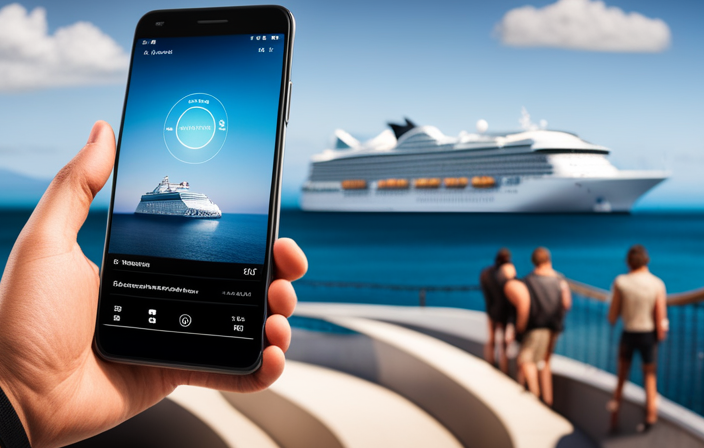
How To Check Weather For A Cruise

How To Get From Venice To Chioggia Cruise Terminal


- Why You Should Enroll
- Online Registration
- Methods of Payment
- Our Trainers
- Our Offices
- Our Clients
- Accreditation-Awarding Bodies-Membership-Partners
- Approved Maritime Training Provider
- Advanced Diploma
- Foundation Diploma
- Certificate
- In House Training
- Licensed Training
- Careers and Employability service
- News and Articles
- Maritime Links
- Maritime Terms
- Maritime Dictionary
- Opportunities
Operational Course
Ship safety officer.

Duration: 2 Months
- Course Program
Who Should Attend
Compliance with regulations.
- Duration and Teaching Methods
Course Benefits
Course content, certification, testimonials, certified digital badge, tutors gateway, high quality learning materials, career and employability service (3 months), registration in the lmi alumni portal, iamcs affiliate professional membership, introduction.
Most of the accidents at sea are due to Human Error. Human error can be reduced by proper training and motivation. Accidents mainly happen due to lack of management, taking shortcuts, complacency, attitudes, etc. . The responsibilities to avoid accidents flow from the top down; from the shore establishment to the Master, to each and every individual aboard. Safety awareness by all hands is the biggest single factor in reducing accidents. . The role of the Shipboard Safety Officer is to promote Safety Culture by training and motivating the crew. It is the desire of every seafarer to work in a safe and healthy environment. Neglecting safety not only endangers an individual's life but also his colleagues. It can have serious implications on one's health and the marine environment besides down time and financial losses. . Auditors, Port State Control Inspectors, Vetting Inspectors, lay a lot of emphasis on following correct safety procedures and practices. The Shipboard Safety Officer course has been designed with a view of training the designated safety officer in understanding the importance of running a safer and cleaner ship thus spreading safety awareness amongst fellow seafarers. . This course is based on the Guidelines given in the STCW Code 2010 Table A-II/2 & A-III/2 and IMO Model Course 3.11 (Marine Accident & Incident Investigation) and is intended to meet the requirements set out in The Merchant Shipping and Fishing Vessels (Health and Safety at Work) Regulations and the Code of Safe Working Practice for Merchant Seafarers (CoSWP).
This course is required for anyone taking up the role of a Safety Officer on board a ship, as defined in The Merchant Shipping and Fishing Vessels (Health and Safety at Work) Regulations 1997 (SI 1997 No. 2962) (the Regulations), which define a safety officer as “a person who has sufficient training and experience or knowledge and/or qualities, to enable him / her to properly undertake the duty imposed under the relevant provision in the regulations”. )
Minimum Entry Requirements
- Producers, Traders or Commodities Brokers and Suppliers
- Ship agent, Shipbrokers
- Shipowners, Charterers, Shippers and Maritime Attorneys
- Purchasers and Technical Managers and Superintendents
- Captains, Chief Engineers and Ship Staff
- Insurance Company Underwriters, claims handlers, and members of the legal profession
- Service providers, Surveyors, Inspectors, Analysts, Technical advisers
- Practicing cargo agents, Freight forwarders, Shipping Industry starters, cargo consolidators
- Other professionals.
This Certificate Comprises a Specialisation one :
Teaching Methods
Modes of attendance, rpl & skills recognition, sources of rpl, types of rpl, 1. credit transfer, 2. prior certificated learning, 3. prior experiential learning, applying for rpl, applying for credit transfer rpl, applying for prior certificated learning and prior experiential learning rpl, getting a decision, how much does rpl cost.
- Coursework, dissertations
- Analysis of topical case studies
- Written reports
- Online examination.
- Helping students in course selection and program planning.
- Consulting and advising students on long-term career goals.
- Consulting and supervising online coursework related to subjects we provide training in.
- Helping students with questions through email or over the phone at a convenient time.
- We often provide students with extra eBooks, free study resources, and extra practice sheets.
- Students are encouraged to contact the education support team, who strive to address learning needs creatively and with care while you are completing the course.
- Enhanced workers prospect for career advancement in the shipping industry through a structured progression program and pathway.
- Provide the trained workforce with skills and industry recognised formal qualifications
Category: - Select Category - Cargo Surveying Marine Surveying Marine Engineering Flag state inspections & Classification surveys Port & Terminal Shipping Management Oil & Gas Logistics & Supply Chain Management STCW / IMO Safety Management Systems Safety Risk Management TMSA and Vetting Operational Course ISO Management Systems Environmental Protection Anti-piracy & Maritime Security SuperCargo Operations
Award: - Select Award -
Area of Expertise: - Select An Area of Expertise -

- Terms and Conditions
- Privacy Policy
- Training Courses
- CPD Accreditation Services
- NAMS Global
- Marine Surveyor
- Manager Maritime Inspections
- Principal Advisor Cargoes and Technical
Safety Officer on Board
Every ship appoints a ship safety officer to handle important safety issues related to the ship and the crew.
The safety officer acts as the safety advisor on board ships and ensures that all requirements related to health and safety are met.
On the basis of risk assessments and investigations, the ship safety officer makes recommendations to the master on health and safety matters. It is the duty of the safety officer to look out for potential hazards and means of preventing incidents on board ship. This Safety Officer on Board online course further discusses these topics.
The Safety Officer on Board online course is based on the Guidelines given in the STCW A-II/2 & A-III/2 and IMO Model Course 3.11 (Marine Accident & Incident Investigation).
In addition, upon successful completion of the safety officer courses online, it is possible to request a hard copy of the Safety Officer on Board certificate (not included).
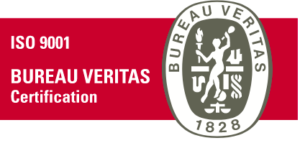
Course Details
$ 109,00.
- Participation: Individually
- Type: Online
- Language: English
Course content

- Duties of a Safety Officer
- Hazard identification
Managing hazards
- Risk assessment
Incident investigation
Certification:
- The Assessment consists of multiple-choice questions
- After passing the assessment, you will receive a download link for your signed and stamped certificate
- You are free to (re)print your certificate anytime. An original hard-copy by mail can be ordered (not included)
How it works
Go digital and save time. Simply sign up and you can start the course immediately.
2. Take the course
You will need a PC, laptop, tablet or smartphone (iOS or Android). You can take the course online or download the course.
3. Assessment
The Assessment consists of multiple-choice questions. Upon successful completion of the assesment you will receive your certificate.
4. Certificate
You will receive a download link for your certificate. You are free to (re)print your certificate anytime. A signed and stamped original hard-copy by mail can be ordered.
Can I take this STCW training completely online?
Yes, this training is fully online, and you can join anytime.
What are the specifications of the Safety Officer on Board certificate?
- The course is based on STCW A-II/2 & A-III/2 guidelines and IMO Model Course 3.11 (Marine Accident & Incident Investigation).
- This course is approved by Emergency Control Maritime Training BV (dba STCW.online), a maritime training institute based in Rotterdam.
- Several of its STCW courses are approved by the Dutch (EU) maritime authorities under ID: NL45 or/and the Liberian Register (if applicable). Both countries are on the IMO “Whitelist”.
- This course does not require flag state approval.
What is the duration of this Safety Officer on Board course?
- This course takes an average of three (3) hours to complete.
- This also depends on your English language proficiency. Native speakers might need less time.
What is the language used in the online Safety Officer on Board course?
Our online STCW courses are all in English (except specific language courses).
Who should take our online Safety Officer on Board course?
This online course is designed for the safety officer of a ship.
Why do I need the Safety Officer on Board course?
Taking this course will help the safety officer to prevent incidents and potential hazards on board. The subjects relevant to ship’s safety are covered in this Safety Officer on Board course.
What is the content of our online Safety Officer on Board course?
This course contains the following elements:
- Upon completion of this course, you will become familiar with cyber security and be able to: Have the knowledge of the general dangers involved in shipboard operations
- Understand the role of a safety officer
- Understand the importance of identifying general hazards and safety awareness
- Carry out Risk assessment
- Carry out accident investigations and root cause analysis
What you will learn
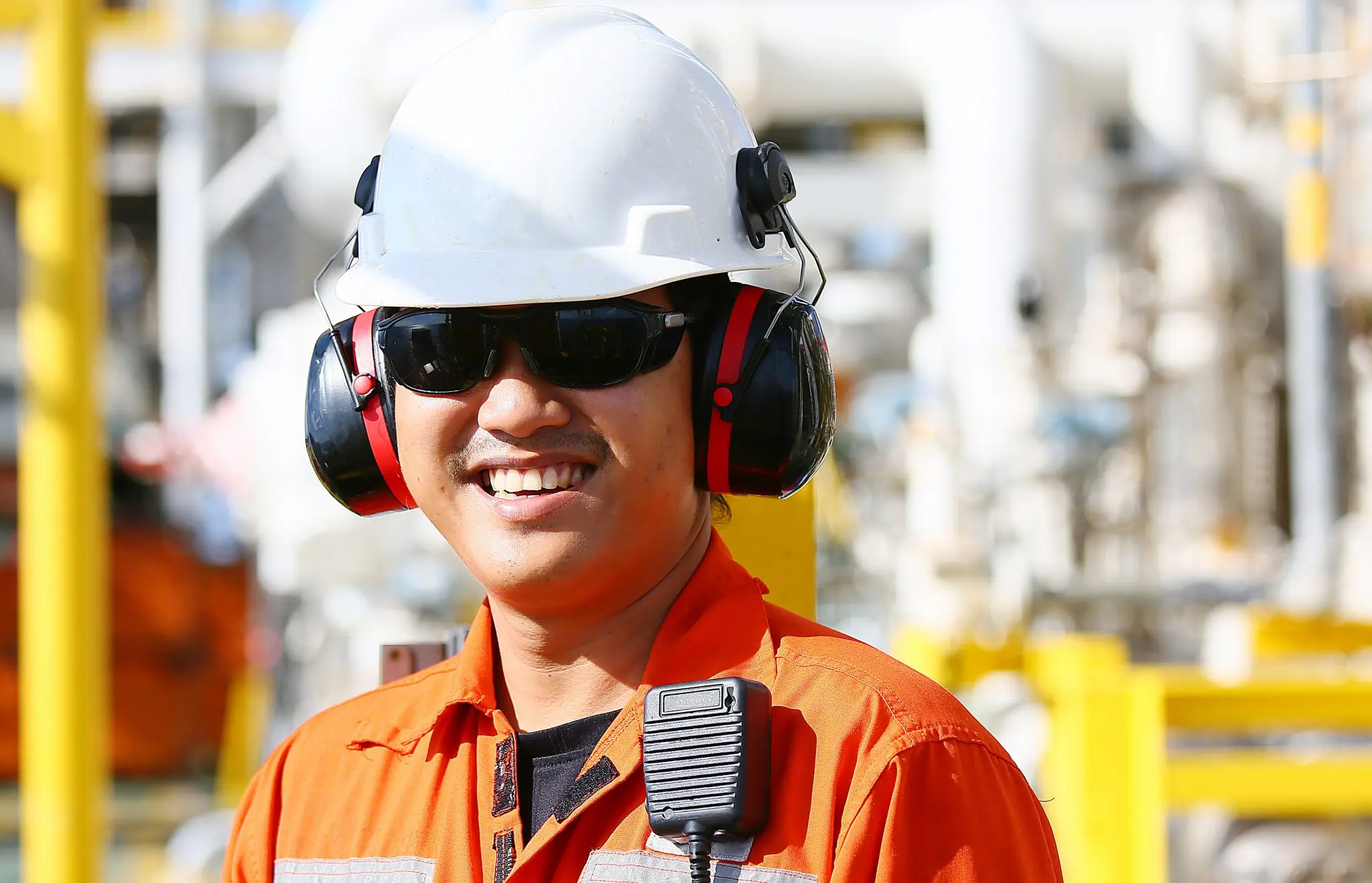
The duties of a Safety Officer
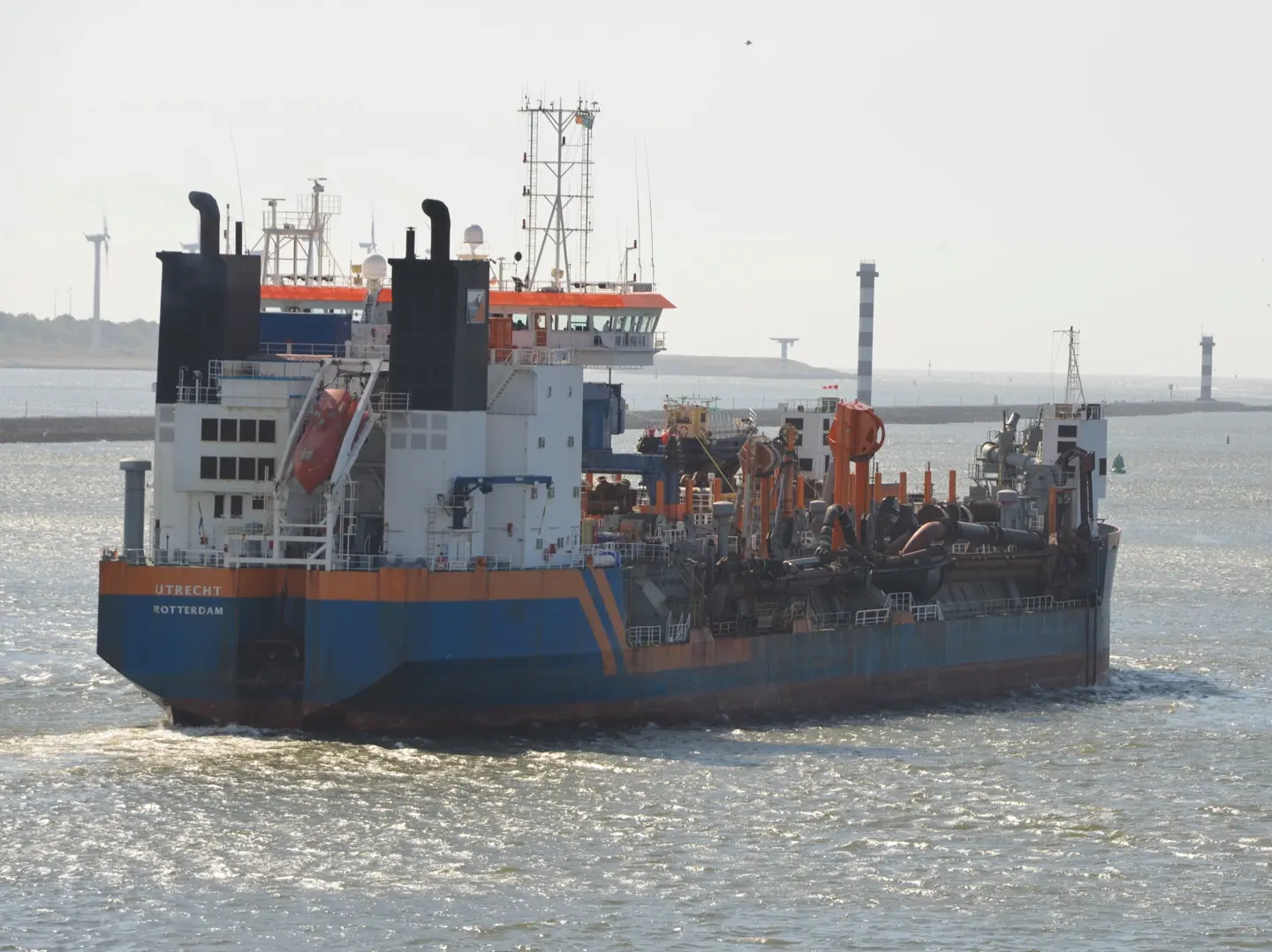
Learn all the aspects of ISM code
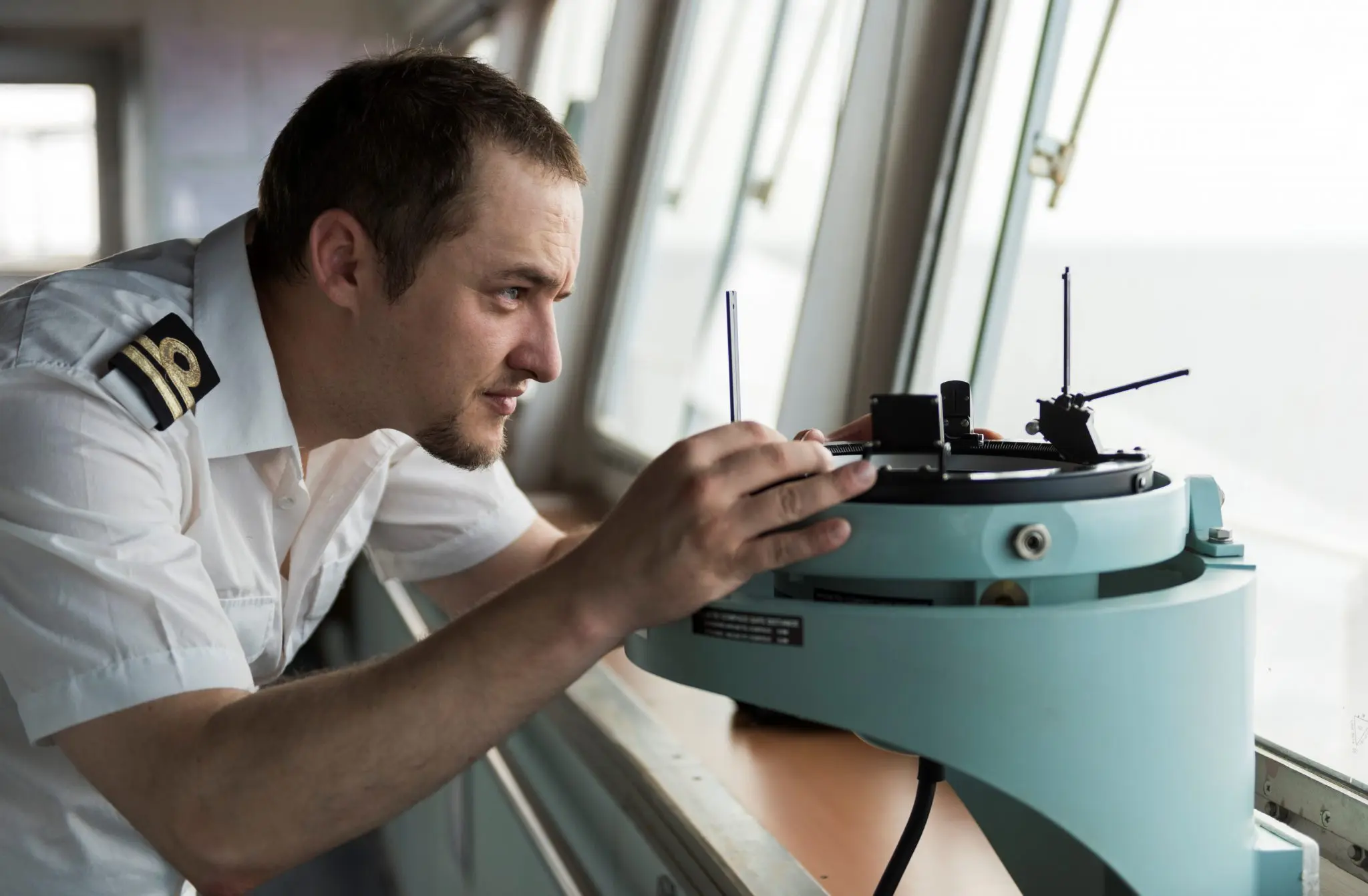
Identify and manage hazards
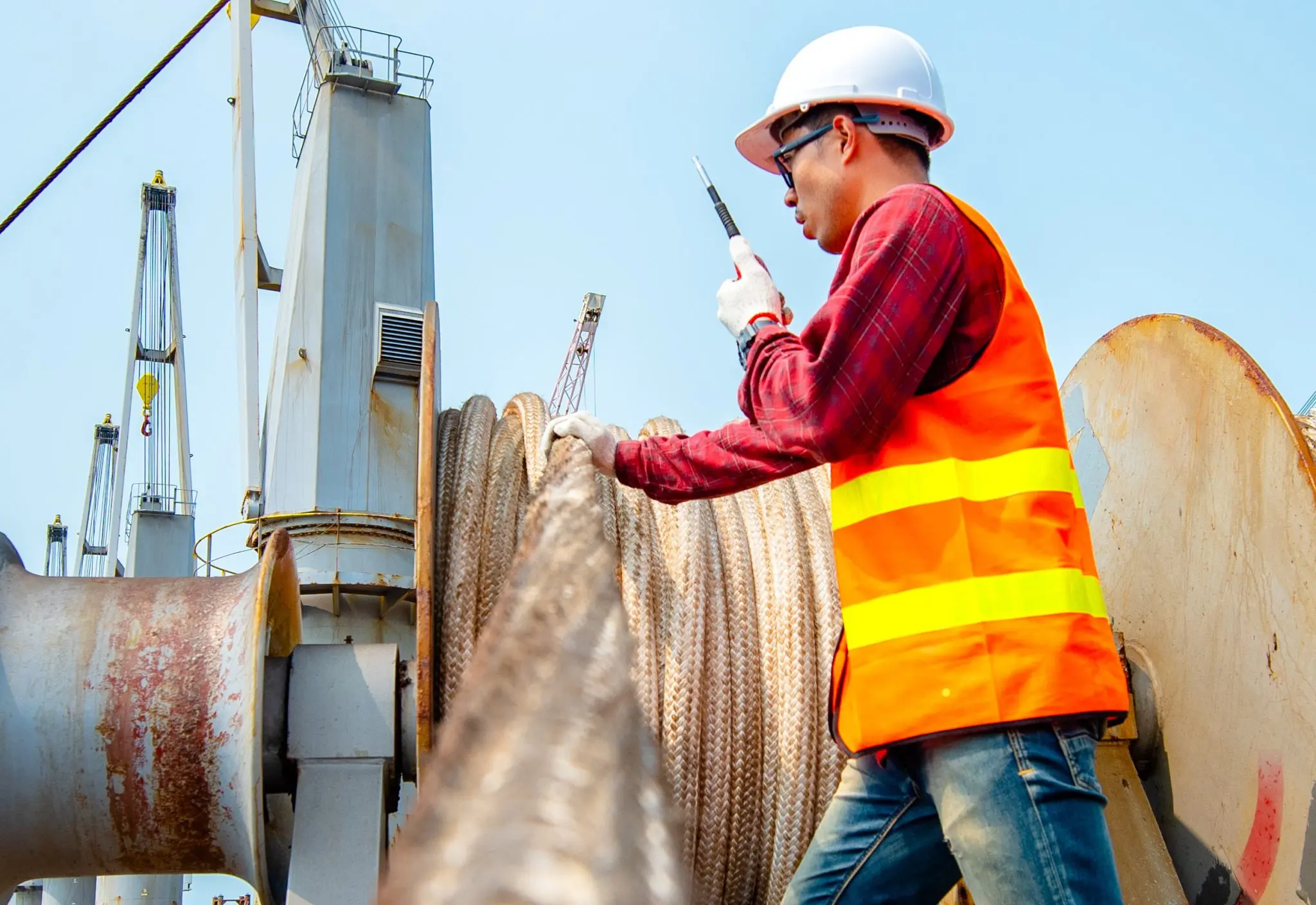
Lead the investigation of incidents

Ship Safety Officer ISM SSO Course 174
MPT is the most complete full service private maritime school in the country and has been training mariners since 1983. Our Fort Lauderdale based campuses host over 45,000 square feet of classrooms, deck and engineering training labs, the Ship's Store, and student service facilities.
Preparing for Ship Safety Officer ISM SSO
Course description.
This course is an excellent add on to the ISPS Ship Security Officer #171 Course or the ISM DPA #172 Course. When you register for 2 of these courses at the same time you will get a $100. discount.
This course follows IMO Model Course 3.11 and may satisfy the requirement for ISM Shipboard Safety Officer training for vessels over 500grt. Check with your flag state. Course Syllabus: The Role of the Ship Safety Officer ISM Code & Safety Culture ILO ISO Health, Safety & Environmental Policy The Employer Competent Person Shipboard Safety Organization Communication Risk Assessment Incident Investigation & Prevention Report Writing
Known as the International Safety Management Code, the ISM Code is one of the required regulations in the maritime industry. Since 1994, when the ISM Code was formally adopted and integrated into SOLAS, it has been a vital component of the Safety of Life at Sea. (Also see ISM Course #172) ISM code works with the motive of satisfying three important goals: • Safety of people on board • Safety of vessel and cargo • Safety of marine environment For implementing ISM code on ships, all the three – the shipping/management company, the governing authority, and the ship’s crew together play an important role. Every seafarer should know the important aspects of the ISM code in order to create a safe working environment while at sea. Under the International Safety Management (ISM) code, every vessel operating under ISM (mandatory over 500 GT), must appoint a ship safety officer (SSO - NOT the ship security officer) who has the knowledge, experience, and skills to look over the important safety issues related to ship and its crew’s health. According to the ISM code a ship safety officer should have minimum of two years of consecutive sea service. (NOTE: In case of tanker ships the safety officer should have six months of experience on tanker ships in addition to two years of consecutive sea service.) The appointed ship service officer should have the necessary qualities to properly take the responsibilities imposed under the relevant provision of the ISM regulation. He/she should also help in proper implementation of the ISM code on the ship. Duties of ship safety officer The safety officer of the ship is entitled to look over all the duties related to the vessels safety. Some of the important duties include: • Look into all the potential hazards to the health and safety of the vessel and its crew • Ensure that the crew maintains high standard of safety consciousness and is familiar with all of the important aspects of the ISM code related to safety • Ensures that the provisions of the code of safe working practices and safety instructions, rules and guidance for the ship’s safety and health are complied with. • Ensure that safety inspection of the vessel is carried out at least every three months or more frequently if required • Help ship safety committee to take substantial steps for enhancing the safety of the ship • To look into crew complaints related to health and safety • Make recommendations to the master to remove a potential hazard which might lead to an accident or harm to the crew • Help in making/maintaining an efficient safety management system (SMS) • Provide information to the ship’s master regarding deficiencies related to ship’s health, safety, and security • Properly investigate any accident involving death of a crew and major or minor accident • Inform the master when someone from the crew fails to work according to the regulations mention in the ISM code • Recommend important aspects related to safety in ship’s maintenance plan • Maintain a record of all the accidents taking place on the ship, including death, major or minor injury, and near death experiences. Also, make this information available to the ship’s master, safety representative, or any official of the company • Stop any vessel operation, which might cause damage to the vessel or harm to any of the crew and inform the Master so the necessary steps are taken. The Ship safety officer is not required to perform any of the above mentioned duties when an emergency action or response is being taken to safe guard life or safety of a ship. Moreover, he/she is also not in charge of any kind of medical treatment or first aid in case of an emergency.
Prerequisites
2 years seagoing experience
experience as officer of a vessel preferred
3 day class in Fort Lauderdale
Required materials.
paper, pencil, passport preferred (or national ID if passport not available), classroom attire
Course Photos

Testimonials
I am from Trinidad and the over all standard of the school was very high i certainly recommend any body to take a class at the facility Sabrina, Friday October 2013 Ship Safety Officer ISM SSO
1915 South Andrews Avenue, Fort Lauderdale, FL 33316, +1-954-525-1014 | +1-888-839-5025 (Toll Free)
Site map | privacy notice | cookie policy | accessibility notice, 1915 south andrews avenue, fort lauderdale, fl 33316 +1-954-525-1014 +1-888-839-5025 (toll free).
- For Business Partner
- Our services
- We are sea chefs
- sea chefs values
- Sustainability at sea chefs
- sea chefs as an employer
- Benefits & services
- Free time on board
- Free time ashore
- Career prospects
- Behind the scenes - videos
- #WorldClassMoments
- Fleet overview
- Hapag-Lloyd Cruises Jobs
- Hapag-Lloyd Cruises Expedition
- Phoenix Reisen Jobs
- Mein Schiff Jobs
- International ships
- Requirements
Application process
- Contact persons
Any questions?
- Hygiene and safety
- Departments overview
- Restaurant & Bar
- Entertainment Jobs - Mein Schiff
- Reception & Administration
- Spa and Sport
- Shore Excursion & Touristic
- Shop & Boutique
- Housekeeping
- IT Department
- Media Department
- Kids & Teens
- Speculative application
- Career events
- Deutsch English
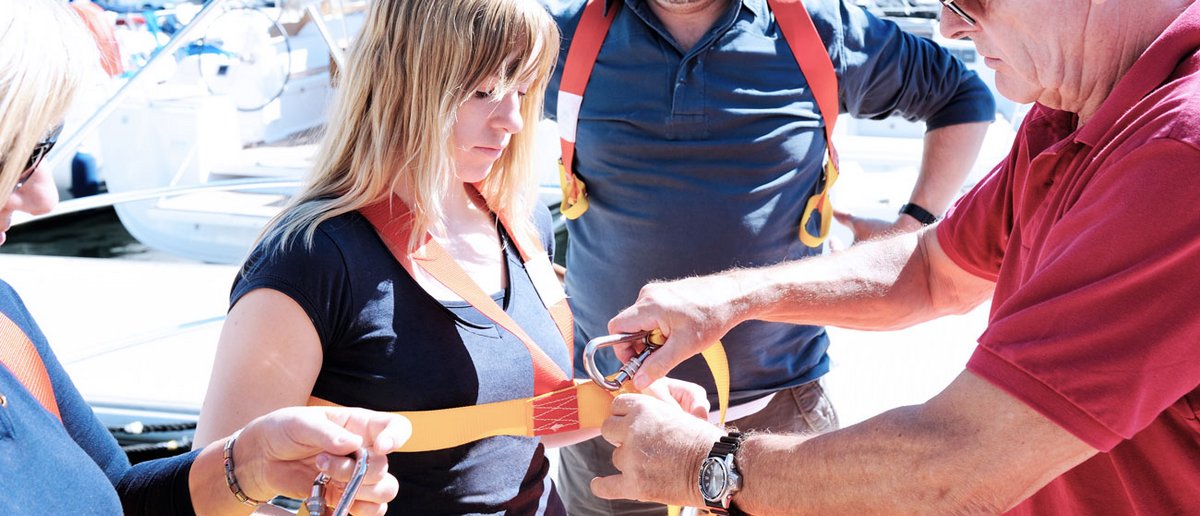
Requirements for the job on board
What makes a real seafarer.
Motivation and passion are the key to working on board. But there are a few more characteristics. Working on board a cruise ship is something extraordinary – a time in which you exceed yourself professionally and personally and which you will never forget. Here you can get a first impression of what working and living on board entails. You can find detailed information and individual requirements for the respective job in the corresponding job advertisement. If you have any questions, please do not hesitate to contact us for example via our Chat or via our free job hotline.
What you bring on board
Vocational training / experience.
The basis for a job on board is completed vocational training or, depending on the position, practical experience in the desired area.
There is a special exception for career changers: cooking training on board the Mein Schiff® fleet. There you will learn the profession of a cook “from scratch”. You can find more information in the respective job advertisements.
Availability / contract duration
In your first contract you will usually be on board for about 5 months (ocean-going cruise ships) or about 9 months (river ships). This differs from cruise line to cruise line and depends on your position on board. Depending on the department, for example in the Tourism Staff area (Hapag-Lloyd Cruises) or in child and youth care, a shorter duration of 8 to 10 weeks is also possible.
Resilience and passion
Do you have a lot of passion for your work and perseverance and do you enjoy being around people? On board you not only spend a lot of time with your team at work, but also privately. As a crew member you have less privacy than on land. In return, the cohesion among the international crew members is incomparable. Your working day on board will average ten hours, seven days a week, which is not to be underestimated. Take an active part in shaping your work environment and show commitment and initiative. Are you ready for the best time of your life?
That's how you are
Your time to shine! Inspire the guests with your skills and personality. As part of our World. Class. Team. you prepare unique holiday experiences for guests every day. With a lot of commitment, friendliness and respect for your team and guests you contribute to what distinguishes us: excellent service, a great team spirit and numerous #WorldClassMoments!
Team Spirit
1 crew - 15,000 colleagues. What makes a World. Class. Team: Good, collegial cooperation is essential. On board, crew members from over 50 nations work hand in hand. Tolerance and adaptability, but above all openness, are a basic requirement for this. We attach great importance to the fact that the cooperation not only works within individual departments, but is also lived across departments – because here everyone is literally in the same boat. Since you also spend a large part of your free time with your team, you can quickly make friends. Unique friendships develop from unique experiences around the globe. Discover the world with us and experience your #WorldClassMoments!
The minimum age to work on board is 18 years. Depending on the fleet and position, this can be 21 years or more (e.g. in supervisor and management positions). There is no maximum age. Before you go on board, however, you have to prove your fitness for sea service, which selected doctors can issue for you. As long as this is given, nothing stands in the way of your career as a seafarer. Further information on fitness for sea service can be found below.
Language skills
The official onboard language of the crew is English. The crew members on board come from different countries around the world. Good English skills are essential for mutual understanding and for security reasons. No worries: We do not expect perfect Oxford English, but you should be able to communicate in English and, in an emergency, be able to implement instructions without further questions. This knowledge, like your specialist knowledge, will be checked by our recruiting team in an interview before you are hired. In order to be able to look after our guests in their mother tongue, German is the second official language on some ships.
A sense of responsibility and flexibility
As a crew member, you not only wear a uniform, but also have great responsibility. Changes to plans and unexpected tasks can occur on board at any time. Therefore, even under stress, you have to be aware that you are not only responsible for the well-being of the guests, but also for the safety of the ship. Since all departments work together, another department may also need your support – that is why we count on your flexibility.
In a nutshell – your way to us
You have the following characteristics: Motivation, perseverance, adaptability, discipline. Passion for your job, commitment, cosmopolitan attitude and expertise. Does that sound like you? Then maybe we will see you on board soon. We look forward to meeting you.
Requirements for embarkation
Was your interview successful? Wonderful – so that you are well prepared for embarking, sea chefs will provide you with guidelines that will guide you through all the formalities . Allow around 1 to 2 weeks for the embarking process – after all, you should be best equipped for the most exciting time of your life! A sea chefs contact will be at your side every step of the way.
Are you ready to fill the pages of your passport? To work on board a cruise ship, you need a valid passport (an identity card is not enough!). The passport must be valid for at least one year from the date you embark. It is also important that at least a few pages are free to allow space for any stamps and visas.
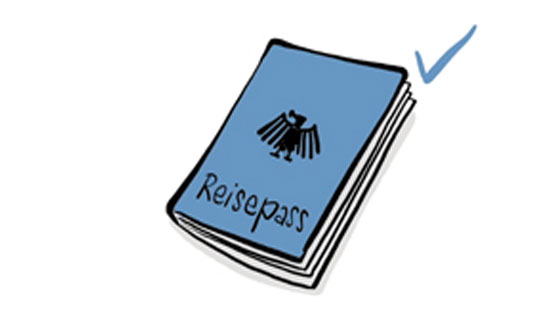
Seaman’s Book
Every real seafarer needs a seaman’s book. In the welcome email you will receive after hiring, you will find all the information on the so-called Crew Check Portal and you will be asked to send us a digital passport photo. The Seaman’s Book costs a certain one-time charge, which is deducted from the first salary. We will apply for the Seaman’s Book for you and, depending on the cruise line, send it to you in advance by post or give it to you on board. For this we need your medical documents and the Basic Safety & Crowd Management certificate in advance, which are absolutely necessary for the issue. If you are already an experienced seafarer, scan it and send it to us in advance so we can check it. If you do not receive the Seaman’s Book in good time before embarking, it will be delivered to you or to the Crew Purser / Chief Purser on board. However, in some ports it is essential in order to embark.
Medical certificate / fitness for sea service
A medical certificate is mandatory in order to be hired. The health of our crew is our top priority. Therefore, you need proof of your fitness for sea service. If you live in or near Germany, you will find appropriately certified doctors all over Germany. You will receive a link to an up-to-date list of such doctors from us. You can get an initial overview here .
Please only have a certificate of fitness for service drawn up if you are already in the application process with a recruiter and a date for boarding has been set. The certificate must not be older than 2 months and should therefore only be issued immediately before boarding. If there are no licensed doctors in your area, please contact us so that we can alternatively explain the sea chefs medical process to you. After the successful examination you will receive your medical certificate, the original of which must be taken on board. You can find more information about medical fitness examinations here .
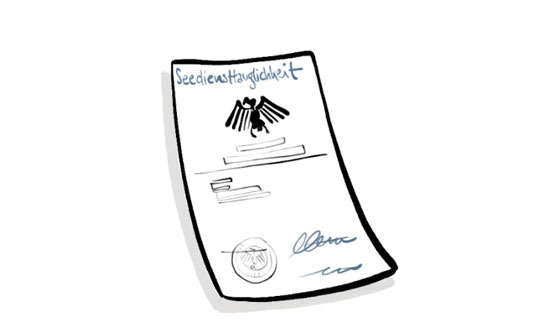
Vaccinations
Yellow fever vaccination.
Since there are many ships sailing around the world and vaccination is mandatory in some countries, a yellow fever vaccination is necessary. Yellow fever vaccinations may only be carried out at specially designated yellow fever vaccination centres, usually also at tropical medicine institutes (the university clinics).
Measles, mumps, rubella, chicken pox vaccination (Hapag-Lloyd Cruises)
A measles, mumps, rubella chickenpox vaccination is required on some ships. This applies in particular to the Hapag-Lloyd Cruises fleet.
You will of course need to pack your vaccination certificate for your time on board. All documents must always be taken on board as originals. You will receive more information about this from your Crewing officer before you embark and the following also applies here: You can ask us for advice at any time.

Health insurance
With your work on board, you are automatically insured for health and accidents. In the onboard hospital, our onboard doctors will be there for you for medical cases. Therefore, please check before you embark whether you can interrupt your existing health insurance. You can then claim this again between your contracts on board.
Safety Certificates / Basic Safety Training & Crowd Management
We count on you! Onboard a cruise ship, the personnel have a major responsibility for safety. Work on board differs in that you spend day and night on the seas and rivers of the world. Therefore, you will complete a safety training and take part in exercises and training again and again during your deployment.
The training is called Basic Safety Training & Crowd Management according to STCW 2010 (Standards of Training, Certification and Watchkeeping for Seafarers) and is internationally prescribed. These safety training courses take place, depending on the Cruise Line, on ocean-going vessels either before embarking on land or directly on board. On river ships, your safety training takes place directly on board. You can get detailed information about this from your Crewing officer.
You can complete the training on land at the AFZ Rostock, among other places. Several dates are available for the approx. 6-day training. Here you will get to know other future seafarers and you can already exchange ideas. We would be happy to register you for an appointment. If your Medical Certificate and yellow fever vaccination are still pending, you can do everything together during the week. This saves a lot of time and can be specified when registering. You can find more information here .
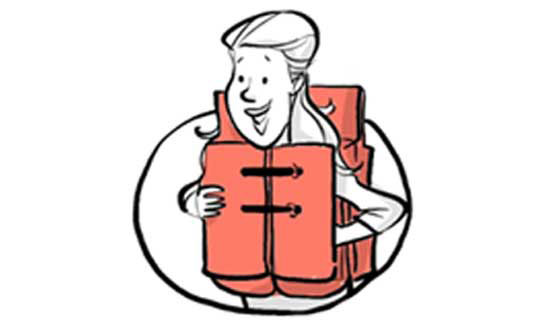
Uniform / work clothing / appearance
All crew members are required to wear uniform when on duty. The work uniform is either provided by us or partially organised by you – this depends on the respective position and fleet. Your uniform needs to be clean, tidy and ironed at all times. This is usually done free of charge by the laundry on board – so you do not need any ironing skills. Always show your best side: Depending on the cruise line and position, there are individual guidelines regarding appearance. You can get more detailed information from the subpages of the respective cruise lines.
Crew ID-Card
Having a credit card is mandatory on some ships. You will then receive a crew card or an onboard pass on board. This card is usually both your cabin key and your means of payment (e.g. in the crew bar and in the shops on board). A private credit card is recommended for your first shore leave at the latest.
C1/D visa (for USA routes only)
You need a US visa (C1/D visa) to work on board ocean-going cruise ships. C1/D visas are required for the crew on the cruise ships docking in the USA. When the time comes, we will tell you whether you need one and how you can get it.
Criminal record certificate (depending on position)
An extended police clearance certificate is required for some positions on board. We will explain whether this applies to you during your application interview.


COMMENTS
Safety Officer Job Description and Duties: - Depending on the cruise line, the Safety Officer may or may not be required to perform bridge watch keeping duties. - Reprots to the Staff Captain. - Directly responsible for the on board safety and accident prevention program. - Coordinates and organizes all aspects in the management of an emergency ...
It is the job of the Safety Officer to ensure that everything on board the cruise ship is according to the proper safety standards. This includes devices and equipment for emergencies, as well as making sure that crew and passengers are properly informed of the necessary procedures. The Safety Officer is responsible to ensure that all fire ...
That being said, you can take several approaches to becoming a licensed security officer aboard a cruise ship, including the following steps: 1. Attend an accredited maritime training program. Many cruise ship security officers must attend an accredited maritime training academy, as this can be a requirement across many cruise lines.
The safety officer of the ship is entitled to look over all the duties related to the safety of the ship. Some of the important duties include: To survey the ship for all potential hazards directly affecting the health and safety of the crew. Supervising and ensuring compliance with the SMS of the ship and its every aspect including the updates ...
While specific position requirements depend on the job you are interested in, there are some essential requirements that all crew must meet to work onboard: Be 21 years of age or older. Be able to pass a criminal background check. Hold a valid passport. Have a US C1/D visa (if you are not a Canadian or US citizen/resident) Have a Princess ...
According to SOLAS, cruise ships must meet the minimum requirements of safety when it comes to navigation, communication, lifeboats, fire detection devices, and fire extinguishing apparatus. According to Cruise Lines International Association ( CLIA ), on an average cruise ship there are approximately, five fire-fighting teams with advanced ...
Safety Officer. Safety Officer. Reference: 8782. Category: Deck Jobs. Published: January 19, 2016. Norwegian Cruise Line Holdings Ltd. is a diversified cruise operator of leading global cruise lines spanning market segments from contemporary to luxury under the Norwegian Cruise Line®, Oceania Cruises® and Regent Seven Seas Cruises® brands.
The Safety Officer is responsible for the yacht's workplace safety and accident prevention programs and co-ordinates all drills for employees, as well as training of the emergency teams. The Safety Officer ensures the proper testing and inspection of all safety systems and equipment onboard and is assisted in these duties by the Assistant ...
Ship's Safety Officer; 3.0 Responsibility and Authority. Commit to the Company's Core Values - carry out daily activities following the R.I.T.E. way - Respect, Integrity, Trust and Excellence are the foundation of all our actions, every day, in everything we do. Assume personal responsibility for safety and the environment.
March 22, 2010. Safety officers on cruise ships are responsible for instructing staff and. Crew members on safety issues. They conduct fire drills and ship abandonment procedures. To become a safety officer on cruise ships, experience in security and/or safety in a similar position is required. The salary for safety officer jobs on cruise ships ...
Proficiency in Security Awareness (as of 1st January 2014) Although these modules can be done separately it is far more cost effective to be done as a package - the STCW Basic Safety Training package - which will save you over 25%: STCW-95 Basic Safety Training package. Additional courses to help kick start your career in the cruise industry:
The board meets regularly with our marine safety leadership team to advise on technical and operational safety plans and help assess new safety, security, environmental, and operational technologies and strategies. Our shipboard security guards wear body cameras for. the protection of our guests and crew.
An officer on a cruise ship holds a position of authority and responsibility, overseeing various operational aspects of the ship. Their primary focus is on maintaining the safety and security of the ship, managing the navigation and communication systems, and ensuring compliance with maritime regulations.
Apply the methods of conducting additional training on board a ship for safety and environmental protection. Safety investigation of Casualties & Incidents. Buy Ship Safety Officer online course. For B2B inquiries or more information regarding this online course please get in touch with our Sales Team at [email protected] or at 00302107778877.
Education and Training Requirements. Becoming a cruise ship officer requires a combination of education, training, and experience. While there is no specific degree or program exclusively for cruise ship officers, obtaining a degree or diploma in a relevant field can be beneficial.
The Safety Officer functions as the yacht's Statutory Safety Officer and, together with the Chief Officer, oversees, guides and supports nautical operations and maintenance throughout the yacht to ensure the highest levels of cleanliness, maintenance, safety, security and environmental compliance ... Cruise Ship Jobs. Housekeeping Jobs (73 ...
To become a cruise ship officer, you'll need to meet specific education and training requirements. Pursuing a career in this field offers exciting career opportunities and a promising salary potential. Advertisement. To start, a bachelor's degree in hospitality management or a related field is often required.
The Shipboard Safety Officer course has been designed with a view of training the designated safety officer in understanding the importance of running a safer and cleaner ship thus spreading safety awareness amongst fellow seafarers. . This course is based on the Guidelines given in the STCW Code 2010 Table A-II/2 & A-III/2 and IMO Model Course ...
It is the duty of the safety officer to look out for potential hazards and means of preventing incidents on board ship. This Safety Officer on Board online course further discusses these topics. The Safety Officer on Board online course is based on the Guidelines given in the STCW A-II/2 & A-III/2 and IMO Model Course 3.11 (Marine Accident ...
This course is an excellent add on to the ISPS Ship Security Officer #171 Course or the ISM DPA #172 Course. When you register for 2 of these courses at the same time you will get a $100. discount. This course follows IMO Model Course 3.11 and may satisfy the requirement for ISM Shipboard Safety Officer training for vessels over 500grt.
As Health, Safety and Environmental Officer (HSE) you will work closely with the Captian of the ship. You will be expected to have lots of in rank experience in the luxury cruise market (Cruise ship experience is essential). The role… The Health, Safety and Environmental (HSE) Officer reports directly to the Master with responsibility for ...
These safety training courses take place, depending on the Cruise Line, on ocean-going vessels either before embarking on land or directly on board. On river ships, your safety training takes place directly on board. You can get detailed information about this from your Crewing officer.
Cruise lines with ships sailing European rivers employ mostly EU citizens; If your ship embarks in a US port you will need the C-1/D visa. You will usually apply for the visa after you get a job offer. Meet the language requirements relevant to your position. English is required by most cruise lines. Employees in passenger-facing positions on ...